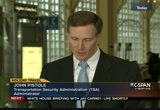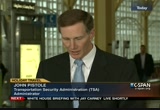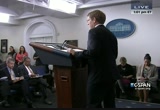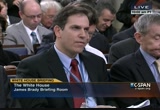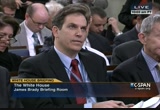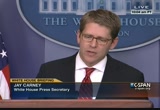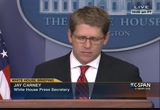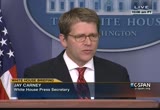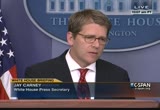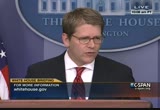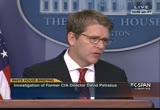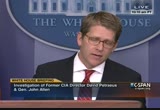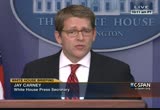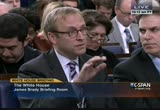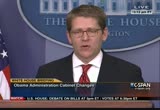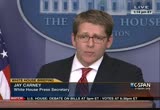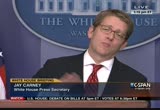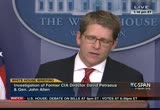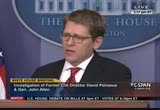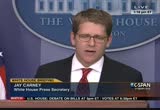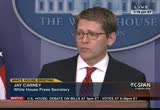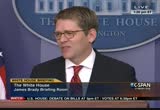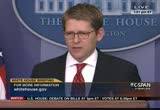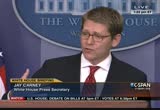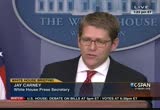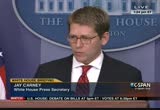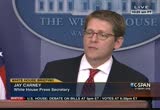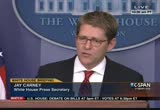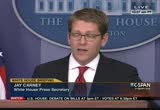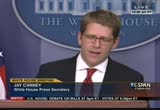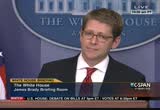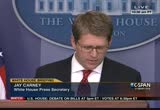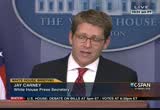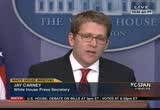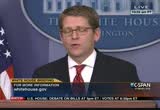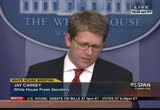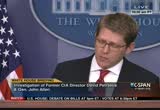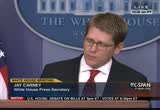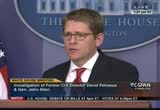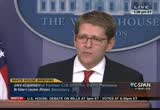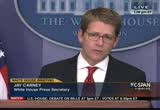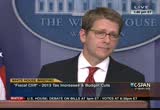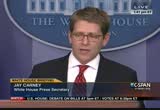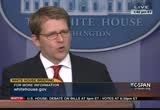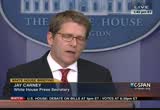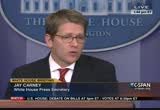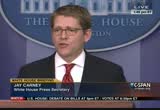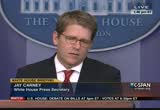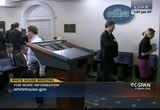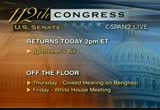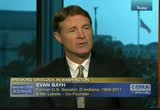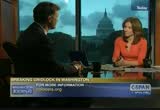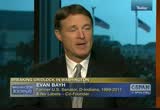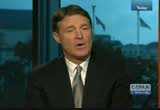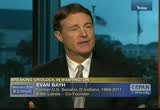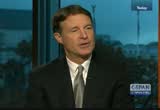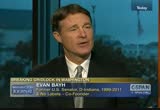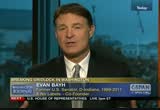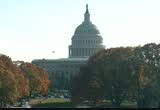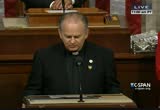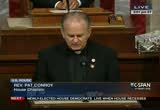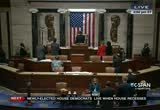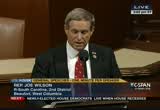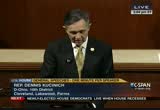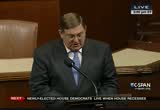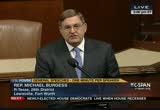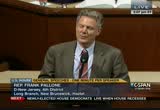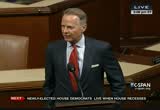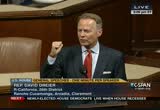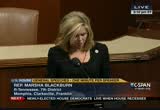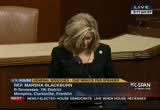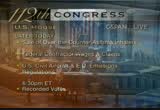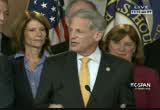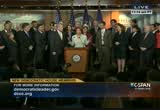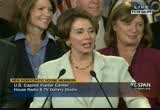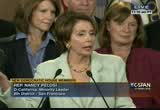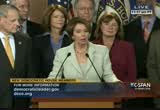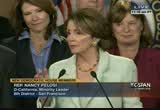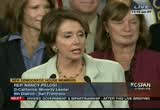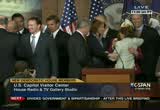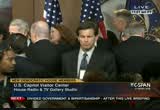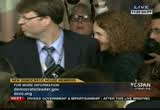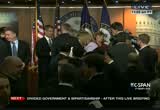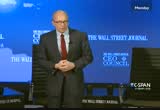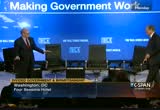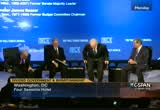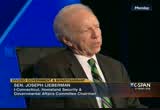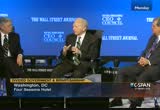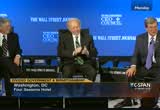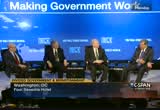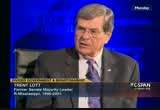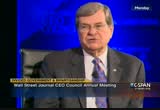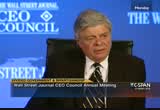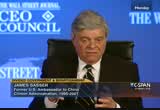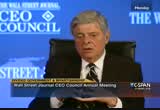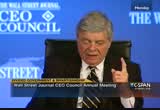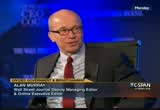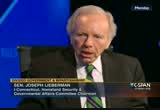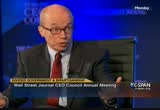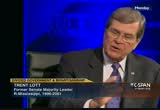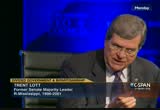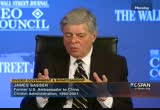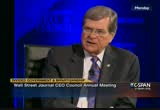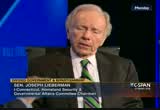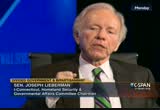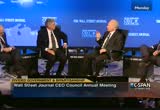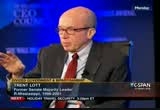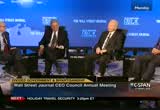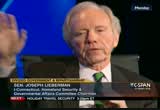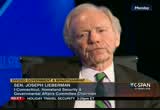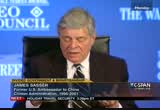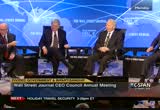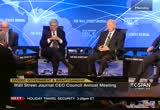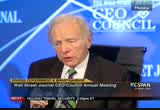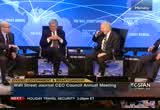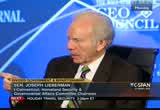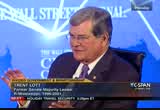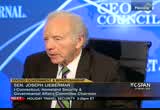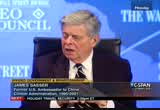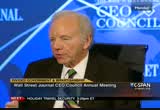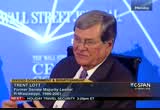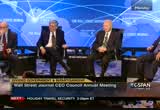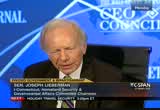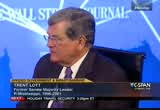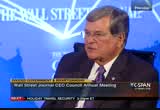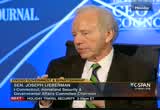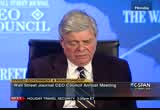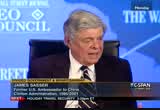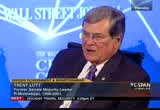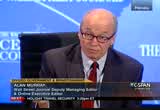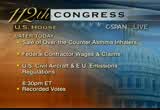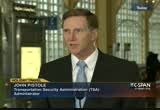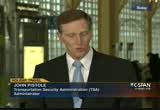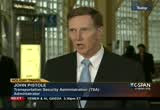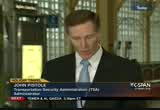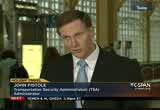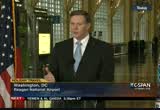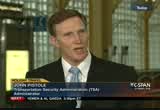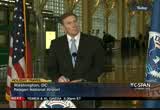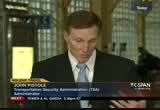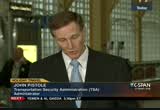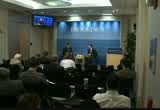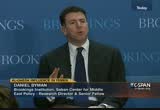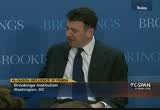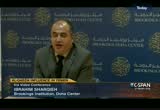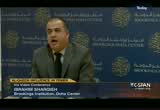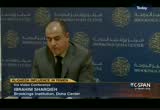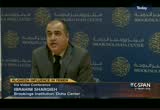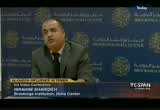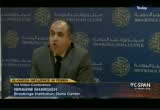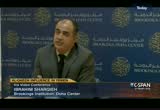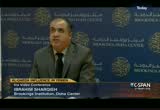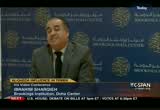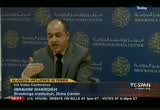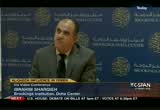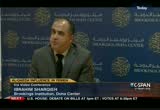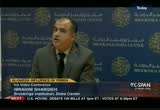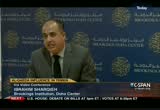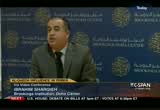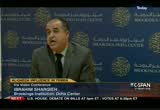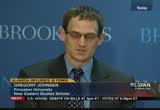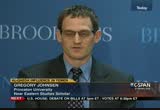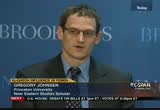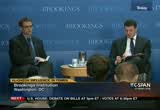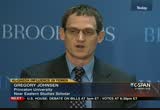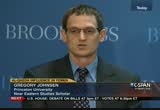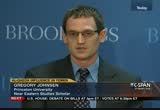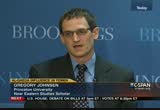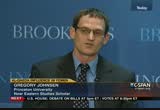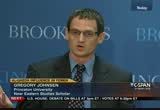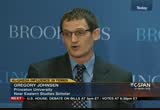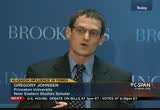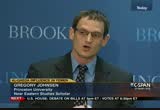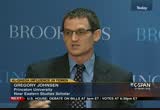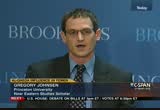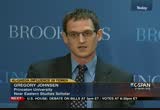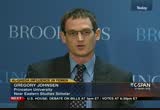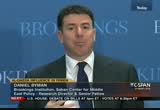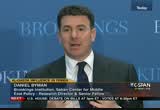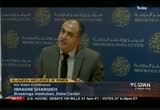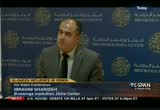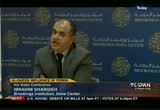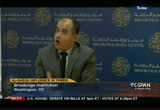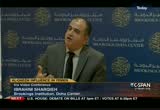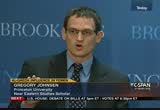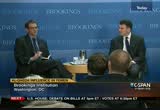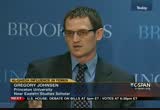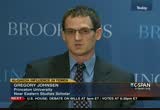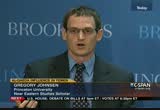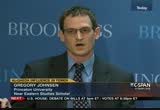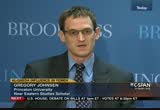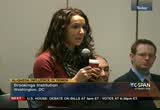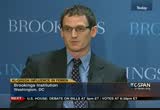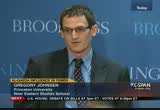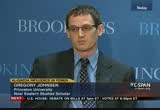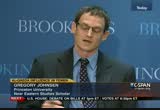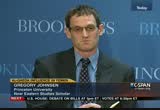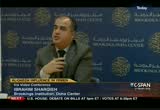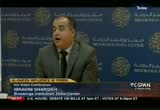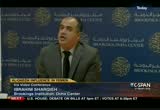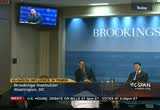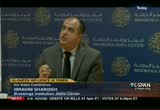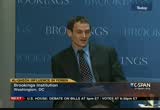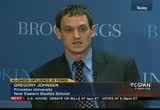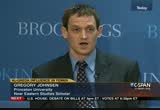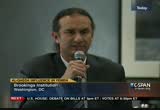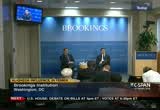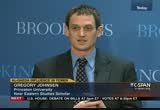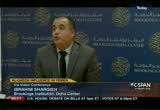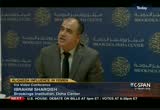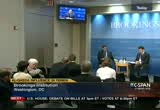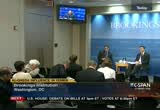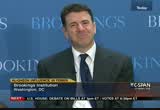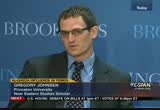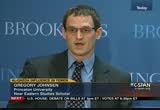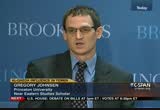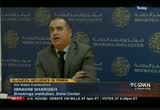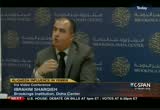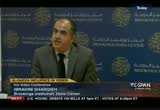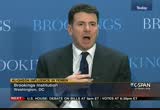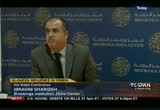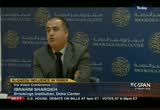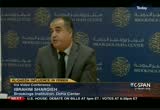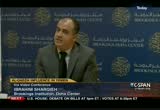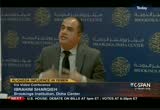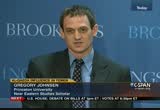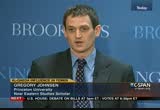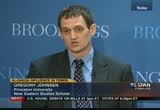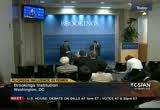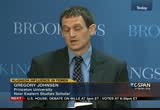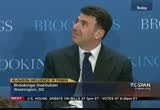tv Public Affairs CSPAN November 13, 2012 1:00pm-5:00pm EST
1:00 pm
r.b.s. in the passenger screening context allows our transportation security officers or t.s.o.'s two of whom you'll meet shortly, to focus attention on travelers, we believe, are more likely to pose a potential risk to our transportation network while providing expedited screening and perhaps a better travel experience to those who in our estimation, based on information we have, pose legislation risk. . for the last 12 months more than 38 million passengers have had an opportunity to experience some type of r.b.s., expedited screening. this includes virtually all passengers 75 and older, 12 and under, airline flight crews, military members, and of course those passengers who participate in what we call t.s.a. precheck. t.s.a. precheck is one of the
1:01 pm
most visible enabling t.s.a. to move away from that one-size-fits all model after 9/11. today t.s.a. has screened more than four million passengers through t.s.a. precheck lanes across the country. t.s.a. precheck is currently available in 29 airports, including here at d.c.a., in operation with five u.s. airlines including alaska, american, delta, united and u.s. airways, we anticipate the t.s.a. precheck will be in 35 airports by the end of the year with b.w.i., san francisco, and orlando airports all coming online this week. an additional airlines will be coming onboard >> all of this briefing in our c-span networks. we'll take you live to the white house for the briefing with jay carney.
1:02 pm
>> good afternoon, ladies and gentlemen. thanks for being here. i have a brief statement to read at the top which is that today the president was able to continue returning messages of congratulations from his counterparts around the world. each call he thadged his counterpart for their friend -- thanked his counterpart for their friendship and expressed his desire for close cooperation moving ahead. the president spoke with president karzai of afghanistan, the prime minister of italy, the king of joshedian -- jordan, qatar, president putin of russia, and the president of spain. with that i'll take your questions. >> a couple questions about the scandal that many of us are now covering, one specific and a bigger picture one. general allen we are learning
1:03 pm
more about skess about him and the pentagon investigation and alleged behavior does the president have faith that general allen can continue to lead the war in afghanistan. he's under investigation by the pentagon. >> can i tell you that the president thinks very highly of general allen and his service to his country. as well as the job he has done in afghanistan. at the request of the secretary of defense, the president has put on hold general allen's notion as supreme allied commander europe, pending the investigation of his conduct by the department of defense i.d. the president remains focused on fully supporting our extraordinary troops and coalition partners in afghanistan who general allen continues to lead as he has done so ably for over a year. meanwhile, the president has nominated general dunford to be the next commander and reiterates his belief that the senate should act swiftly to confirm him, his hearings are
1:04 pm
this week. >> is it ack to a -- accurate to say the president has full faith in general allen? >> he believes he's doing and done an excellent job at isaf and i refer you to the pentagon with the process under way. >> to take a step back, it's been only a week since it came out, we have seen the c.i.a. director resign under pressure in the disgrace of the scandal. we have not seen the -- we have seen the leader of afghanistan implicated in this. what's the president's reaction to this? is he disgusted? embarrassed? what should we know here? >> well, the president was certainly surprised when he was informed about the situation regarding general petraeus on thursday. he greatly appreciates general petraeus' remarkable service to his country, both in uniform and at the c.i.a. and as he said in his statement , his heart -- his thoughts and
1:05 pm
prayers go out to both general petraeus and holy -- holly petraeus at this time. he's focused on his policy agenda. and he has confidence in the acting director at the c.i.a. and he has confidence in the military to carry out the various missions that he has asked them to carry out. on specific individuals and matters pertaining to the recent revelations, i would refer you to the pentagon and the i.g. on the one hand and to the f.b.i. with regards to general petraeus. >> he's not -- big picture watching, he's not shaking his head saying, guys, we need a more credible, competent sense of leadership? >> he's not going to make grand pronouncements or decisions about things based on two situations, two individual cases. he's focused on the missions
1:06 pm
that the military is tasked with carrying out and the c.i.a. and the general intelligence community is tasked with carrying out and with enacting his overall agenda. which encompasses not just national security policy but obviously domestic polcy. -- policy. yes. >> jay, has the president spoken to general allen directly? >> not that i'm aware of, no. >> secretary panetta? >> i'd have to check that. secretary panetta has been traveling. >> as sort after follow-up, does the president see this in general as an unwelcomed distraction at a time when he's just -- was re-elected and has a bunch of priorities in terms of the fiscal cliff and his cabinet? >> i certainly i think wouldn't call it welcome. obviously the -- as i said to ben, the information about
1:07 pm
general petraeus came to him as a surprise, and he is very appreciative of general petraeus' remarkable service to his country. the president is focused on the agenda he believes is important for this contry. he has to carry out working with lawmakers here in washington. that includes his number one priority, which is jobs and economic growth. on the issues of the approach we need to take to ensure we have the right economic policy, the right fiscal policy to help the economy grow and help it continue to create jobs. he is also focused on his national security agenda. he has great confidence in the acting c.i.a. director.
1:08 pm
he has confidence in his military and the secretary of defense and defense department to carry out the missions that he's assigned to them. he's got a lot he wants to work on and is doing that this week. >> how does that affect his need to advance his security team? >> these are specific questions about specific individuals and posts. i can say now even though you haven't asked that i have no announcements to make with regards to personnel. the president has not made decisions on personnel matters. and you will not hear me discuss them until the president has made those decisions and has announced them. >> these are two of the top military brass either involved in extramarital affair or inappropriate behavior, is the president as commander in chief
1:09 pm
all worried about a culture, inappropriate culture in the military? >> i really would ask you to not extrapolate broadly. the president has great confidence in the mill teamplet great confidence in his commanders and will continue to have that confidence. with regards to the specific instances here, i think you need to address your questions to the justice department and the f.b.i. or the defense department. the president's focused on doing the work that the american people re-elected him to do. >> does the white house have reason to believe that national security was ever breached or threatened at any point in either of these instances? >> i think that questions like that which go to matters under investigation, i would refer you to the investigative bodies. the president is focused on the work that he needs to do. again, i think there's been substantial reporting on some of this and the president spoke
1:10 pm
with general petraeus and agreed with his decision that he could no longer lead the c.i.a. and accepted his resignation. he has great faith in the acting director. and the president's sfow focused on the agenda he wants to carry out. >> another topic, i know you are not going to address personnel matters. does the president have confidence, i know he's a big fan of susan rice, does he have confidence she could pass senate confirmation for any post in a future cabinet? >> i will not engage in speculation about personnel matters. can i tell you the president believes ambassador rice has done an excellent job and is grateful for her service. >> yes. >> this investigation has been going on for months. how is it the white house didn't have any idea of this until the day after the election and the congress a few days later? >> i would refer you to the
1:11 pm
f.b.i. they have, as i understand t. protocols in place for when they notify the legislative and executive branches of investigations. and it is simply a fact that the white house was not aware of the situation regarding general petraeus until wednesday and the situation regarding general allen until friday. the f.b.i. is the place to go in terms of explanation of the protocols they follow. but i understand that that is the answer that they will give. that there are protocols they follow. that govern how they inform the various branches of government. >> do you understand how people would think this is utterly bizarre the day after the election and the anger you are hearing on capitol hill that this was going on? the timing, at least the appearance? >> all i can tell you is when the white house was informed.
1:12 pm
and i would let the relevant members of congress explain to you how and when they were informed. my understanding is there are protocols that the f.b.i. follows in -- with regards to these kind of notifications and i would refer you to the f.b.i. and department of justice for an explanation of those protocols. again, the president is focused on the work that we have to do right now to help our economy go -- grow and help our economy create jobs. and there are obviously a whole host of other issues that are out there and that he and others have to contend with and he and others are doing that. but his focus right now is on working with congress to move this country forward economically. >> senator collins says that it is imperative that general petraeus testify in the hearings on benghazi.
1:13 pm
we have heard similar statements from senator feinstein. do you think it's appropriate for the former c.i.a. director to be testifying about what happened given that he was director at the time and given he's conducted his own review? >> i would say two things. one, it is up to congress to make decisions about who is called to testify. but the president is confident that acting director morel is fully informed and capable of representing the c.i.a. in a hearing about the incidents in benghazi. >> am was door rice, if she were to go for confirmation hearing -- >> for you i'll break the hypothetical rule. >> if she were to go before a senate confirmation hearing, could she answer questions with
1:14 pm
a simple yes? are questions answerable? >> i'm not sure what you're asking. i'm not going to speculate about personnel matters and who will or will not be participating in nomination hearings. i can tell you that the president believes that ambassador rice has done an excellent job as the united states ambassador to the united nations. and i believe that -- i know that he believes that everyone here working for him has been transparent in the way we have tried to answer questions about what happened in benghazi and going back to briefings that we had again and again that the information that we provided was based on the available assessments at the time and as those assessments evolved and became more detailed and clear, we provided additional
1:15 pm
information. and that was certainly true of the questions that i answered and the information that i provided and it was true of ambassador rice. >> we are going to see a lot of moving pieces on this chessboard. we also understand that governor patrick is maybe one piece. he did have -- could you give us a read on that and we expecting his resignation as governor? >> i have nothing to say about hypothetical personnel moves. i can tell you as i think the other day the president and -- considers governor -- the governor of massachusetts a good friend. he has broken bread with him on numerous occasions in the past and i'm sure will in the future. i was not a participants in
1:16 pm
this particular meal but i'm sure that they had a discussion on a broad number of topics and enjoyed each other's company. >> just a friendly meeting? nothing strategic? >> i don't have a read out of personnel dinner the president had. but they are friends. i would say, yes, a friendly dinner. >> jay, is the president satisfied with the explanation he's gotten from the f.b.i.? >> i'm not aware he's had a conversation with the director. i can simply tell you that the process -- when the white house was notified. >> is he satisfied how this has gone? >> the president was obviously surprised, but he -- as i think was made clear by the statement, that he put out, is very appreciative of general petraeus' service both in uniform and at the c.i.a., and
1:17 pm
as well as holly petraeus' service and wanted that to be made clear. there are protocols in plause, as i understand it, and i haven't -- >> it sounds like you don't have an answer. >> i think it would be -- >> if he was satisfied -- >> i would certainly not suggest that the president is -- given that he was surprised that he, as i said before, pleased with the event of this past week, but the -- past several days, but the fact of the matter is there are processes in place to handle these kinds of things. they are playing out appropriately, and the president is focused on working with members of congress to enact an agenda that he believes the broad majority of the american people want enacted. >> it sounds like he doesn't like the fact that he was blind-sided? >> i didn't say that. i'm just saying that he has
1:18 pm
great admiration and respect for general petraeus. >> director mueller here. >> i understand that. i would refer as i said earlier process that is are in place as i understand it at the f.b.i. for how they deal with notifications of investigations. i think that they are the best place to go for an explanation of those processes and procedures and why they are written the way they are and followed the way they are. all i can tell you is the actions that were taken here anti-notifications that happened here. and how the president has handled them. >> is the president concerned that this whole soap opera, scandal, slows down the fiscal cliff negotiations? makes it harder? makes it easier? >> i haven't heard him make a judgment or express an opinion on that. i think that the issues that confront us are important
1:19 pm
enough and consuming enough with regards to the so-called fiscal cliff and the budget that he expects that those who are engaged in conversations about it and negotiations about it will be as focused as he is and will be in the days and weeks ahead. so we have very concrete deadlines that are governing some of the actions that we have to take. what we know is that on january 1, everyone's taxes go up. everyone in this room, everyone. around the country. unless the house passes the bill that the senate passed. which would extend tax cuts for 98% of the american people and 97% of small businesses, and the beauty of that partial solution to the fiscal cliff is that everyone supports it. everyone, democrat and republican. supports extending those tax
1:20 pm
cuts for the middle class, extending them for 98% of the american people and 97% of the small businesses. as you heard the president say on friday and as i know you'll hear him say when he meets with you tomorrow, this is a step that the white house -- that the washington can take that would create certainty for almost all americans, certainty for almost all small businesses. would help alleviate some of the potential damage caused by -- that could be caused by the fiscal cliff, and would enable us to move forward to address the many other issues that we have that confront us. it would be an excellent way to demonstrate to the american public that after an election where these issues were central to the debate, washington can move forward and we can compromise. >> given the -- everything that's going on with petraeus and allen, is there -- is the president going to ask the national security team to sort of, hey, guys, i know you want to leave, but get me another
1:21 pm
month or two. >> i really don't have any announcements or hints to make about personnel matters. the president -- >> does he think he can make these changes in the miths of all this right now -- mitts -- midst of all this right now? >> what changes you are talking about depends on which broadcasts and newspapers you follow, but i'm not going to engage in that kind of speculation. the president has -- knows he has a very strong team in place and will make personnel decision when is appropriate. he'll announce them when he's made them. >> tomorrow? >> i have no personnel announcements to preview. >> does the election change the president's strategy in dealing with republicans on the deficit reduction plan? some of the things he's offered in the past still on the table?
1:22 pm
>> i think one of the useful things about the -- this past year and the election is that these matters that the president and congress will be key siding -- deciding in the coming days and weeks and months were front and center during the campaign season. in many ways they have been front and center for the past several years. and the -- why that's useful is we all know what the parameters of a compromise look like. we know what a truly balanced approach to our fiscal challenges looks like. and the president has put forward a very specific plan that will be what he brings to the table when he sits down with congressional leaders. and that's a plan that builds on the $1.1 trillion in spending cuts that he's already signed into law. and finds other savings both in
1:23 pm
discretionary spending and in our entitlement programs, $340 billion additional savings in our health care entitlement programs, and insist, as the essence of balance, that revenue be included. $1.6 trillion in revenue. and that approach enables us, when taken as a whole, to reduce our defendants by $4 trillion. begin to really get our fiscal house in order. and allow us to continue to invest in crucial areas of our economy that will help the economy grow in the near term and create jobs in the near term but also build a foundation for economic growth in the future. that's why the president views the issue of deficits and debt not in a vacuum. he does not believe that reducing deficits and debt are values unto themselves. he believes they are part of an
1:24 pm
approach that is driven by his number one priority, which is economic growth and job creation. and one of the reasons why you need to have balance in the approach you take is to ensure that you can continue to do the things that help the economy grow, that invest in education, that lead to people being hired to work on building our infrastructure, that ensure we are having investments and innovation and aspects of the economy that will be so important in the 21st century, because if you don't, you have lost sense of your overall purpose here, which is a vibrant american economy that enables americans to find work and work that enables them to live a good life and send their kids to school and take care of their parents. that's the way -- that's the approach the president takes.
1:25 pm
it's not a pinched view of deficits and debt. it's a broad view of how we need to move forward with the economy. >> does that mean that he's willing to say no to richard who has told his folks to lobby congress not to allow changes in medicare and social security? >> the president's plan, which i know you all have read in detail, contains within it additional savings in health care programs. $340 over 10 years. -- $340 billion over 10 years. as a whole the plan demonstrates that we can take a balanced approach that if we asked the wealthiest americans to pay a little bit more, we can continue to invest in areas of the economy that need investment, and we don't have to ask seniors or parents of disabled children or the least fortunate among us to bear the
1:26 pm
burden of getting our fiscal house in order. that was in many ways the essence of the debate we had this past year. >> also on these personal announcements you don't want to talk about, is the president also happy with the job that the secretary's done? >> he certainly is. >> $340 billion basically a reduction in payments to providers. what other savings did he tell the progressive labor caucus today he might have to get out of entitlement programs as part of a grand bargain? >> first of all i'm not going to read out the details of a meeting that was still taking place shortly before i came out here. >> it's over now. >> there are two aspects here of savings in our health care programs that you may be conflating which is the initial savings, significant savings that also was the focus of debate this past year that were achieved through the affordable
1:27 pm
care act, and there were -- $340 billion is additional savings that's part of the president's proposal. that is a substantial amount of money. what the president said on friday is the position he will take when he enters the room with congressional leaders this coming friday, and that is he has a very specific plan that takes a balanced approach and he believes very much that broadly speaking his plan is a good guide to how we can achieve a broader compromise. he also said very clearly that he is not weded to every aspect of his plan and he understands that in order to reach an agreement, everyone needs to compromise and that compromise should not be a dirty word in washington. that is another message of the election that he took, certainly, which is the american people want action. they don't want political posturing. they don't want ideology driving the decisions made
1:28 pm
here. i think citing i believe speaker boehner, it's fair to say that the president also believes we don't -- he's not looking to box himself in or box other people's ideas out. as we approach the conversation that will be in on friday. >> suggest to the meeting that just took place they might have to give up more than they would like? >> i think the president has made very clear that everyone, throughout this process, not just in this past week since the election, but for some time now, that the whole point of compromise is that nobody gets to achieve their maximalist position. that was the approach we took throughout negotiations in 2011 and it's the principle the president has based his own proposals on. if you look at, again, the programs that the president has already cut through legislation he signed into law, if you look at the savings he's willing to
1:29 pm
enact as part of his plan, it demonstrates a willingness to give so that you can meet your negotiating partner somewhere in the middle and reach a deal. >> you don't have any specific -- >> i don't have any specifics. >> if you could read them out before they do. >> i am -- don't have anything specific. >> obviously i'm interested in the conversation with president putin. whatever details you can provide. what was the conversation? what was discussed? what plans for the president speak? >> these calls i read at the top were responses to calls to congratulate the president on his re-election. they were focused on that subject and were all fairly brief. i don't have any more specifics
1:30 pm
on you -- for you on the conversation with president putin. >> to follow up on the compromise component. is the president willing to compromise on his insistens that the bush tax cuts are not extended for the top income bracket? >> no. i can help you with this. the president is committed to extending and believes it is the right position to extending tax cuts for 98% of the american people. 98%. and 97% of small businesses. the senate has passed that. the house could pass it tomorrow. the president would sign it as soon as it got to his desk. that would demonstrate to the american people that washington can work on their behalf and can address at least in part some of the challenges that face them with these deadlines, end of the year deadlines. second, he would, as i said the other day, not sign a bill that extends the bush era tax cuts for the top 2%. that has long been his position. it has not changed. he will not sign such a bill.
1:31 pm
that bill would never pass the senate, but if somehow miraculously it did, he would not sign it. he also believes as part of the approach that he's long taken and as part of this balanced -- ethos of balance that he takes to these issues, that it is -- that he does not accept you need to raise taxes and will not accept a plan that raises taxes on those making under $250,000. and finally, a balanced approach requires substantial revenues. and those revenues need to come from those who can afford it, the wealthiest among us. and that's demonstrated in his plan. you heard him talk about during the campaign that the clinton era rates in place in the 1990's, far from hindering economic growth, were part of an economic approach passed in 1993 that led to the longest
1:32 pm
peacetime expansion in our lifetimes that led to the creation of more than 23 million jobs. it also led to the creation of scores, hundreds, probably thousands of millionaires as the president made clear. there are different ways to approach this. the president is clear, he will not sign a bill that extends the bush era tax cuts for the wealthiest americans because it's not good policy. >> even if the wealthy end up paying more in taxes because the loopholes were closed? >> you are engaging in hypotheticals about plans that don't exist. what i can tell you is the president will not sign a bill that extends tax cuts for the top 2%, extension of the bush-era tax cuts. he has long supported and proposed tax reform both individual and corporate. and he believes that's important. but you heard him, he was pretty clear during the campaign, and has been clear in other forms, that one things we
1:33 pm
know about the clinton era rates for those top earners is that they were effective. not just in ensuring that the wealthiest pay their fair share, but in -- as part of an approach that fueled economic expansion, job creation, and wealth creation. that's the thinking that he brings into this. i will not negotiate the specifics before the leaders even have a chance to sit down. >> general allen's situation or resignation of general petraeus come up at all in the president's conversation with karzai? >> no. these were conversations about -- not that i'm aware of. these were very relatively short conversations about the president's re-election. >> the meeting today with labor and the progressive leaders, what was his message going in there? you said some are concerned he's going to overcompromise in a deficit reduction deal. did he a specific thing he
1:34 pm
wanted to convey to them when he met with them today? >> i'd say several things about the meetings he's having this week, including the one that concluded just earlier. and that is he wants to hear, he wants to hear others' ideas, he wants to listen. and in terms of the approach that he's taking and it's very much what you heard him express on friday, and that is what he is telling those he's meeting with this week. that he's committed to a balanced approach. that he will not sign an extension of the high income tax cuts of the bush era. that he believes congress ought to act immediately to extend tax cuts for 98% of the american people so that we don't find ourselves in a situation in the new year where everybody in america has their taxes go up and the reason is because the house wanted everyone's taxes to go up rather than accept that the top 2% of the american people
1:35 pm
shouldn't have their taxes -- should have their taxes go up. but these meetings are more about hearing from those in the room about what ideas they have and concerns they have. beyond that i don't have a readout for you. >> in previous administrations white house staffers and cabinet secretaries have been asked to either submit a pro forma resignation or declare their intentions for the second term. is the process at that stage here at all? >> i'll say again that i don't have any information for you about personnel decisions. >> i'm asking about a process not personnel decisions per se. >> i am not aware of a process like that in place. >> if you would clarify, what was the timeline again in terms of when the white house learned about the general allen investigation? >> the president first became
1:36 pm
aware on friday after the department of justice notified white house counsel that there may be an issue associated with general allen's nomination. which is my understanding why the department of justice felt it was appropriate to notify the white house because as you know, general allen was nominated to be supreme allied commander, europe. the president was notified monday evening that secretary panetta had referred the matter to the defense department's i.g. >> the pentagon says panetta learned on sunday and then advised the white house. the white house learned about it, at least about the investigation -- >> they learned very broadly that there might be an issue associated with general allen's nomination. i would refer you to the justice department and f.b.i. in terms of the processes they follow for notifying different agencies and the branches of government. but the white house counsel was informed and then the white
1:37 pm
house counsel brought that to the president and then on sunday -- monday evening, the president was notified that secretary panetta had referred the matter to the i.g. >> logistical question about tomorrow, what time is the news conference? >> i don't have a time yet. we'll get that four. >> was this -- did the f.b.i. use this as part of a background check on allen? >> first of all we don't generally discuss vetting issues or background checks. >> part of the confirmation process. this implies -- >> not part of the confirmation process. that's not what i'm saying. what i'm saying is the department of justice notified the white house counsel that there may be an issue associated with general allen's nomination. as you know general allen -- the nomination has been suspended but he was nominated to be supreme allied commander and that hearing was pending. >> who was doing this
1:38 pm
background check? can you tell us that? >> i would refer to you justice and f.b.i. for background checks. >> the way you are describing two incidents that happened that don't have a dramatic sweep across the administration. has this been distracting what the president is trying to do with the fiscal cliff or other important matters? >> we have a host of important matters that we have to address. this is obviously -- involves important personnel. so it's something that the president has engaged in once he found out -- >> how much time -- >> i don't have the time. can i tell you that -- >> moving things around -- >> no. remember, what -- when the white house found out, when the president was notified. when the president met with general petraeus and when he accepted his resignation, this was not a great expanse of time. as we have just been discussing, the president is having meetings today and will have other meet this is week
1:39 pm
focused on the path we need to take to grow our economy and create jobs and the decisions we have to make in the coming weeks to help that--- that come about. it's certainly part of governing that these issues arise and you have to deal with them. >> question on fiscal cliff. you said he won't sign any bill that comes to his desk extending the bush cuts. it's highly unlikely he would ever get a bill to his desk. my question is, how open is he to the notion that's been put forward by tim kaine, maybe make the limit $500,000 or $1 million in terms of going forward on these bigger negotiations? is he ruling them out completely? is that something he would consider? >> i think i have given you pretty good parameters on the president's thinking going into the process that he himself said begins with the proposal, the specific proposal he has before congress.
1:40 pm
a plan that achieves balance and that allows us to continue to invest in important areas of the economy. but he is not wetted to every detail of that plan. i -- >> the details out? >> again cite speaker boehner in saying i'm not in the position to, he's not, i don't think the president is in the position of boxing ourselves in or boxing others out. he looks forward to the meeting with leaders in congress. he has some very clear principles and positions that he's taking into that meeting. and believes that we can -- that compromise is possible here that would allow us to address the fiscal cliff challenges and more broadly the overall economic and fiscal challenges that we face as a nation. >> following up on that. is he just taking principles in or does the president have
1:41 pm
anything concrete to put on the table? you said a moment ago that negotiators have to meet each other halfway s that just congress that has to meet them halfway? >> i appreciate the suggestion that he doesn't have a plan that he's bringing to the table. it is the most specific and detailed plan there is and it's been on the table for quite some time. he will bring that, again, as i have said repeatedly, that is what he believes is the right approach. but he is not wetted to every detail in it. there is a challenge here for anyone who would put forward alternative approaches to prove that the numbers add up. and one thing we know about the president's plan is that the numbers add up. i think if nothing else over the course of this past year, we have earned some credibility on the fact that we know our arithmetic. and the fact is you need a balanced approach that achieves a level of revenues, that achieves additional entitlement
1:42 pm
savings, that achieves reductions in spending and if you do that, and you get to that $4 trillion mark the way the president does, will you have a very positive effect, he believes, the president believes, on our overall economic prospects. because you will send a signal to the world we are getting our fiscal house in order, but you'll also send a signal to the american people that we are doing it in way that doesn't harm economic growth, that quite the contrarery, boosts economic growth. it doesn't -- contrary, boosts economic growth. it doesn't contrast job creation, but boosts job creation. you don't make these decisions in a vacuum. cutting the deficit or reducing our debt are not goals to pursue by themselves. they are goals you pursue because if done right they help the economy and they help the american people. >> has the president ever felt blind-sided by information reaching him too slowly? not just with general petraeus or general allen or benghazi?
1:43 pm
has he ever felt that information moves too slowly to his desk? >> i haven't had that broad conversation with him. i don't have an answer. >> secretary of state clinton has said recently that while she doesn't intend to serve into a second term, she would be willing to stay on until a successor is confirmed. does that give the president flexibility to move in sort of a deliberate manner in that particular personnel decision? is that something he might -- that might allow him not to shoot for just january 22 of next year as a date certain when he needs to have a replacement? >> without speaking for secretary clinton or any member of the cabinet, i think that the president greatly appreciates the service of every member of his cabinet and decisions like that. i discussed the other day the fact that secretary geithner will be staying through naugswration.
1:44 pm
-- inauguration. as emblematic of the kind of service that these individuals have given over these past four years. i think the president -- know the president believes that secretary clinton has done a superb job and greatly values her service and advice and will be grateful for her service up until the day she decides to leave. >> should she offer that service for an extra month or two? could that be perhaps helpful? >> you can be the judge of that we have a number of issues we are contending with as this briefing demonstrates. and the president will engage in a thoughtful process and make personnel decisions that need to be made. in a timely manner. and when we have decisions to announce, we'll announce them.
1:45 pm
he has a team and a team that has served the nation and served him well so they'll continue to work with that team. >> if the f.b.i. patriot cols were followed in informing the white house, and the president basically had a day's notice he was about to lose the c.i.a. director, does the president feel like the protocols have to be revisitted? would it be ok at some future point the same sequence of events comes down and he only finds out just moments -- >> i think that's an interesting question and i appreciate it, but there are hypotheticals involved there that -- i'm not going to -- if this were to happen again in the same way. i think this is pretty unique situation. but as far as the protocols themselves and how they were adopted and followed i would refer you to the f.b.i. and justice. >> does the president field he was ably served by the f.b.i. protocols that gave him a day's
1:46 pm
notice? the president made a decision based on his conversation with general petraeus. and general petraeus offered his resignation and said that he did not believe he could continue to serve as head of the agency. the president took some time to think about that and agreed with that assessment. i don't think that's affected by the time frame here. i think that this was a meeting the president had -- >> given how partisan washington has been the past couple years, the fact that general petraeus was a republican and served in rabble administration, makes it relatively easier for the administration to deal with this fallout politically? >> no. general petraeus served his
1:47 pm
country as in the military an the c.i.a. he did not serve a party. and that is one of the great things about the military. and the president is enormously appreciative of that service. thank you-all. >> exiting and entering the west wing, i was curious if they met with the president today? >> you witnessed the formation of a new band. that's good. bono was here not to meet with the president but to meet on international development issues with other members of the white house but not the president. i'm not sure why he was here, but he's always welcomed.
1:48 pm
[captioning performed by national captioning institute] [captions copyright national cable satellite corp. 2012] >> several questions in today's briefing about the resignation of general david petraeus, director of the c.i.a. the national journal reports that michael morel, the acting director of the c.i.a., was at capitol hill early this afternoon. he's been there, at least one stop involved visiting minority leader nancy pelosi. mr. morel will testify later this week as both the house and senate intelligence committees hold hearings on the benghazi attack. both the house and senate are gaveling in in about 12 minutes or so. the u.s. house coming in at 2:00. four items on their agenda this afternoon. they will gavel back out shortly thereafter. we expect them back at about 4:30 or so. a number of new members will be sworn in. we'll have live coverage. the senate meanwhile comes in this afternoon at 2:00 p.m. as well. they take up a bill dealing with hunting and fishing on
1:49 pm
federal lands. we'll have live coverage of the senate on c-span2. also coming up this afternoon, a number of house -- new house members, democratic members will be meeting with reporters and also nancy pelosi will be at that briefing, as will the head of the d triple c, chairman johns for the house races, steve israel of new york, news conference coming at 2:00 eastern. we'll likely have it for you here on c-span as the house is expected to gavel out quickly at 2:00. >> what i like about c-span's coverage is it's in-depth. oftentimes you'll cover an event from start to finish, and i can get the information that i need. i like to watch the communicators, i like to watch congressional hearings. the events that you do at the national press club where there are policy leaders speaking. i find those useful. >> howard woolley watches c-span on verizon. c-span, created by america's
1:50 pm
cable companies in 1979. brought to you as a public service by your television provider. the lame duck session starts at 2:00 p.m. eastern. until then part of this morning's "washington journal." host: we are back with the former senator from indiana served as democrat for that state from 1999 to 2011. now co-founder of the no labels organization. senator bayh, let me begin with the petraeus resignation. what's your reaction? you served on the intelligence committee. >> i -- guest: i did for 10 years. it's a personal tragedy. david petraeus has served our country very capable. >> we are fortunate that the
1:51 pm
agency we've got a great leadership team. morel has stepped in, very capable individual. others there are capable of stepping in. there are going to be changes in the top rank. it's going to be a time to transition for the agency. it's in good hands. >> did he have to go? did he have to resign? >> i would accept his judgment and the president's about that. my own answer is, yeah. i think he did. there's a lot of chatter out there this was a sex scandal. why is that important these days? my answer to that would be there are a handful of positions in the government, director of the c.i.a. is one, where you can't have someone who is susceptible, in fact that doesn't appear tonight case, is susceptible for the potential of being blackmailed. what if his pair miles per hour had been blackmailed. that takes place all the time in the world. you can't have the director of central intelligence with that kind of potential vulnerability. the department of x, y, or z, maybe not so much. head of department of defense, c.i.a., can't have that.
1:52 pm
>> if it's known that attorneys general eric holder or f.b.i. director, if they knew long before the election and they did not tell the president, or they did tell the president, as our last guest said, the president did know, there was a directive that came down from the top this would not be told to the public until after the election, what's your reaction to that? >> i think we ought to wait and find out what the facts are before we offer comments about this. i'm not prepared to offer a judgment until i know what the case is. this is a tough situation. it appears the f.b.i., concluded there was no law broken. they concluded there was no national security breach. there was a lapse in judgment, but the nation wasn't harmed. no law was broken, what do you do in a case like that? >> should the intelligence committee members have known? guest: i was on the intel committee, you want to know right away that's how the members view things. but, again, no national security breach.
1:53 pm
no laws broken. personal lapse in judgment, probably needed to resign. what do you do in a case like that. host: you still serve on an advisory board to the c.i.a.? guest: we meet quarterly. host: what is that board? guest: public knowledge. i'm not divulging anything new. host: for those that might not know outside of washington. guest: it's a group of 16, 20 individuals with long experience in the intelligence foreign policy, national security arena, who serve as a sounding word and resource for the director about -- board and resource for the director about issues the agency is facing. we meet quarterly. leon panetta started this. general petraeus carried ton. we review a variety of issues and offer our thoughts to the direct quor for whatever they are worth. host: let's move on to, then, the fiscal issue. the so-called fiscal cliff. lots of stories in the papers today that president obama's meeting with labor leaders who are insisting that the
1:54 pm
president not change entitlements. no cuts to medicare and social security. do you agree? guest: i think some adjustments are going to have to be made. social security today is a lot different than it was when franklin roosevelt first instituted it. it's not as if it's etched in stone. that said, it's got to be a balanced approach. i think that's what the president is going to say. the two actually save the entitlement programs the nation is on the road to bankruptcy, to save them we have to make some adjustments. but you have to do it in a way that also calls for additional revenue. and how you do that through tax restructuring and possibly asking those who have been most successful in society to do a bit more to help get the deficit down, that balanced approach is what i think he's going to insist on. i think you'll find both sides, the my party, will be saying no changes to entitlements whatsoever. and the far right they'll be saying, no revenue whatsoever. what needs to happen, what ultimately will, will be something somewhere between the 40-yard lines. host: do you think democrats are serious about deficit
1:55 pm
reduction? guest: i think so. in part because we have to be. the markets will not allow us to continue to go down this path any longer f we went over the fiscal cliff without some framework for resolving the problem being announced, i think you would see the equity markets sell off dramatically, the dollar would fall, interest rates would begin to rise. it would be very harmful to the real economy. in fact, the uncertainty today i think is harming the economy it sefment businesspeople are postponing investments. they are delaying hiring decisions because they don't know what kind of tax structuring they are going to be dealing with. we have to resolve this problem if we want to get the economy growing again. if we want to keep the country in a stable basis. yes, i think democrats are serious about it. now most democrats are looking to reoff it. that's why we have a legislative and governmental process is to hash all that out. host: what should be the president's message to labor leaders today? labor leaders who say -- take credit for re-election lekting him to a second term?
1:56 pm
what should be the message on compromise? guest: i think he should say i share your values. i'm streeted to saving the programs. you can count on that. but we may need to make some modest adjustments over the next 20, 30, 40 years in order to maintain the financial solvency of the government and in fact to sive these programs -- save these programs. some modest adjustments in changes will be necessary to savet very programs themselves. i think that's what he needs to tell the labor leaders. host: if that is true and we have heard from senate majority leader harry reid that he does not think social security should be on the table, that no one is touching social security is what he has said, but centrist democrats, like yourself, and there are more of them now in the senate, say, we are willing to compromise on this issue. what's the payback from party leaders? >> there's change and there's change. you recall in what was it, 1982
1:57 pm
or 1983, back in the 1980's, tip o'neill and ronald reagan got together and made adjustments to social security that saved the program. that's my point. sometimes you need to adjust and change to save the very thing you care most about. and so tip o'neill didn't sell out the democratic party by embracing that agreement. the democrats in congress, many of them very progressive at that time who supported it, didn't work traders to the party. if we do it in a responsible way, a balanced and doesn't just gut the programs and just not all entitlement reform with no revenue, i think the base of the party and leaders and organized labor will understand. they also know the alternative is doing nothing, with bad damage to jobs and the economy. and ultimately insolvency of these programs themselves, or. b, the right wing of the republicans are coming in and taking over because we have done nothing to solve the problem and their answer to the solution would be much more draconian.
1:58 pm
host: jack. he's our first phone call for the senator. republican. go ahead. caller: mr. bayh, one question. can you guarantee the people that they haven't let stinger missiles get lose over there in libya? guest: i thought you were going to ask me about why indiana university and kentucky weren't playing basketball. for the first time in years and years indiana and kentucky aren't playing. we are rivals across the ohio river there. jack, i can't talk about classified intelligence information on tv as you can understand. clearly things like stinger missiles, those sorts of weapons systems, are potentially very problem mat inc.ic and we do everything we can to -- problematic and we do everything we can to keep track of them as much as possible. gaddafi's regime had stockpiles of weapons like that? shoulder fired ground to surface missiles. we are doing everything we can to track them down. but the region and that country
1:59 pm
in particular was awash in these things, it's chaotic. i don't think there are any american systems gone missing, it is a concern. host: paul in indianapolis, independent caller. go ahead. caller: good morning. guest: where do you live? caller: up on the northeast corner. up just south of hamilton county. guest: our place over at 83th and ditch. caller: we are at 86th and hague. i have a pro-life progressive, i guess you'd call me a true independent. i don't have a party. although i never voted for you, i never voted against you, either. guest: you're open-minded. i appreciate that. caller: i guess i work at st. -- >> today's "washington journal" in our video library at c-span.org. live every day. also at 7:00 a.m. eastern here on c-span. we ever breaking away here. the u.s. house is gaveling in for their first meeting of the
2:00 pm
lame duck session. wrapping up the 112th congress. they'll gavel in. we expect them to gavel out shortly thereafter and return at about 5:00 p.m. eastern. four bills under consideration later today. votes at 6:30 eastern. during that series of votes they will swear in a number of new congressmen as well. we'll have that for you live when they gavel back in. when they gavel out here shortly after 2:00, we are going to take you to a news conference with some newly elected democratic house members. that will be coming up shortly here on c-span. right now live to the house floor. the speaker: the house will be in order. the prayer will be offered by our chaplain, father conroy. chaplain conroy: let us pray.
2:01 pm
loving and gracious god, we give you thanks for giving us another day. as the members of the people's house regather after our biannual elections, may your spirit of peace descend upon them. as the 112th congress moves towards a close, may all here attend to the business at hand, providing what is needed for the benefit of our nation. may all members, regardless of the outcome of the election, trust that their future service be it in the house or not will be viewed with your grace. may they be confident that americans of good will are grateful for their service of the past and wish them well into the future. we ask your blessing, as well, on those newly elected who will be joining us this aservely for the 113th congress. may their transition into office be smooth and marked bit
2:02 pm
civility of democratic change of government which is the rightful pride of the united states of america. and finally, we ask your blessing on america's veterans, may our nation be faithful to them, providing whatever their needs may be after they gave years of their lives in service rather than personal gain. they are an inspiration to us. we should not forget nor neglect our responsibility to them. may all that is done this day be for your greater honor and glory. amen. the speaker: the chair has examined the journal of the last day's proceedings and announces to the house his approval thereof. pursuant to clause 1 of rule 1 the journal stands approved. the pledge of allegiance today will be led by the gentleman from south carolina, mr. wilson. mr. wilson: everyone, including the guests in the gallery, please join in.
2:03 pm
i pledge allegiance to the flag of the united states of america and to the republic for which it stands, one nation under god, indivisible, with liberty and justice for all. the speaker: the chair will entertain requests for one-minute speeches. for what purpose does the gentleman from south carolina rise? mr. wilson: mr. speaker, i ask unanimous consent to address the house for one minute and to revise and extend my remarks. the speaker: without objection, so ordered. mr. wilson: mr. speaker, yesterday with veterans day, our country celebrated and remembered the brave men and women who have served in our armed forces. dedicating their lives to protecting our freedom and keeping american families safe. unfortunately, sequestration is targeting these honorable individuals and our national security by being implemented and less taxes are increased. defense spending, according to the "hill" newspaper, is 15.1% of the budget but is subject to 50% of the cuts. raising taxes during times of economic uncertainty limits the
2:04 pm
creation of new jobs. america's small businesses should be encouraged to create jobs. this will reduce the unsustainable deficit. house republicans were re-elected last week on the premise of not voting to raise taxes. i support the legislation of house armed services committee chairman buck mckeon to stop sequestration and promote peace through strength. in conclusion, god bless our troops and we will never forget september 11 and the global war on trim. the speaker pro tempore: for what purpose does the gentleman from ohio seek recognition? >> good afternoon, mr. speaker. i request permission to address the house for one minute. the speaker pro tempore: does the gentleman seek unanimous consent? mr. kucinich: i do. the speaker pro tempore: the gentleman is recognized for one minute. mr. kucinich: we put together a bipartisan congressional coalition to try to stop the war on libya, that four americans, including our ambassador, were killed confirmed our worst fears, that american power was being used to open the door for jihadists, creating more instability in
2:05 pm
the region. congress still doesn't know why our people in libya were left vulnerable. we still don't know why the u.s. military was not sent to their defense. it is of the highest importance that general petraeus, who led the c.i.a. at the time, be brought before congress to testify as to what really happened in benghazi, whether there was a security lapse or whether the administration temp rised on security and stood down to mollify violent dess per ate groups which have nothing in common with our nation. u.s. involvement in libya is a disaster, compounded by the killing of four americans. we need to find out the truth about benghazi, whoever it affects. the speaker pro tempore: for what purpose does the gentleman from texas seek recognition? >> i ask unanimous consent to address the house for one minute and to revise and extend my remarks. the speaker pro tempore: without objection, the gentleman is recognized. >> four americans, including
2:06 pm
our u.s.ed a bass dore, was killed. i sent a letter to president obama. numerous inconsistencies voiced by those in his administration, i have not heard back. mr. burgess: i requested that the state department speak to me with more information. our office emailed every business day and received no response until november 7. then in a scripted response, they refused my request to speak with me. no one, not one person, is willing to talk about the details. well, since they wouldn't talk to me in the privacy of my office, let me ask in a public forum. why did our ambassador die? how did our ambassador die? it's been two month. was it smoke inhalation, was there evidence of torture, was there physical evidence of torture on the ambassador's body as it was returned? and why were the bodies returned to andrews air force base when protocol dictates they go to dover for the immediate investigation?
2:07 pm
these questions need to be answered. the state department needs to be forthcoming. the administration needs to be forthcoming. i pray this congress will exercise that authority. i yield back. the speaker pro tempore: for what purpose does the gentleman from new jersey seek recognition? >> to address the house for one minute. the speaker pro tempore: does the gentleman seek unanimous consent? >> yes. the speaker pro tempore: the gentleman is recognized for one minute. >> thank you, mr. speaker. i wanted to point out to my colleagues that the damage in my district and throughout my state in the aftermath of hurricane sandy was nothing less than catastrophic. mr. pallone: but i really want to talk about the rebuilding effort today and what we need to do over the long term. the amount of outpouring, if you will, from volunteers, from just regular people in the district was just overwhelming. and i want to thank fema. i want to thank the red cross, the salvation army, all the different groups that are out there and continue to be out there today helping out with in effort. but the outpouring of volunteers from our own
2:08 pm
district and from new jersey was gist incredible. -- was just incredible. a few days ago i remember going to union beach, which was one of the towns hardest hit, and seeing so many people bringing food and clothing and cleaning supplies and one guy owns a pizza place, brought in a pizza oven and was making pizzas. another guy brought in a tv so people could watch tv at the center. where people come to sign up for fema. it just was amazing and it showed the spirit, if you will, of the people that they were willing to do that. but thank you all again. obviously we are going to work on rebuilding, which is certainly the next step here in congress and elsewhere. thank you, mr. speaker. the speaker pro tempore: for what purpose does the gentleman from california seek recognition? >> i ask unanimous consent to address the house for one minute and to revise and extend my remarks. the speaker pro tempore: without objection, the gentleman is recognized for one minute. mr. dreier: mr. speaker, this being the first day we've convened since the election i want to begin by expressing my appreciation to our chaplain,
2:09 pm
father conroy, for his very inspiring and thoughtful prayer. mr. speaker, we are here this week to deal with a very important issue, and i will say that we were all taught as kids, better late than never. we're here because u.s. workers at this point don't have access to 140 million potential consumers for their goods and services. and i'm talking about the vote we're going to have on so-called russia permanent normal trade relations. mr. speaker, vladimir putin is not a good guy. vladimir putin has inflicted horrendous human rights policies on the people of russia. we've seen crony capitalism take hold. and that's why it's very important, mr. speaker, that the united states of america be at the table as part of the w.t.o.'s effort to force russia to live with the rules based trading system.
2:10 pm
last year we exported $11 billion in goods an service to russia. if we can pass pmtr we will double that to $22 billion by 2017. mr. speaker, it's a very, very important vote. we need to make sure it's successful this week and i'm gratified that it's going to be done in a bipartisan way. with that i yield back the balance of my time. the speaker pro tempore: for what purpose does the gentlelady from tennessee seek recognition? >> to address the house for one minute and to revise and extend my remarks. the speaker pro tempore: does the gentlelady ask for unanimous consent? mrs. blackburn: yes, sir, i do. the speaker pro tempore: the gentlelady is recognized. mrs. blackburn: a little later the house will vote on the european union prohibition act, and this is a bill that's important to our civilian and civil aviation operators, and it would block them from participating in the european union emission trading scheme. now the reason this is important is because of this.
2:11 pm
according to bloomberg news, the inconcurrent resolution of the airline industry in the e.u.'s 2005 cap and trade program will cause u.s. airline companies between -- get this -- $10.1 billion and $39.4 billion, some 2012 to 2020. now who do you think will pay that cost? consumers are going to pay it. and the house has already decided, we don't want our cap and trade system. we voted against that domestically. so why would we want our airline industry to have to participate in this on an international basis? m.i.t. economists have looked at it and said the new rule will increase costs on passengers to subsidize their cap and trade system. so with rising fuel costs and a downed economy, we simply cannot afford this. so for these reasons i urge my colleague to protect american sovereignty, to support our domestic aviation industry and
2:12 pm
vote in favor of h.r. 1956. i yield back the balance of my time. the speaker pro tempore: the chair lays before the house a communication. the clerk: the honorable the speaker, house of representatives, sir, pursuant to section 1238-b-3 of the national defense authorization act of fiscal year 2001, 22 u.s.c. 20002 of the consolidated appropriations resolution, 2003-22 u.s.c. 6901 i am pleased to reappoint mr. russles to the u.s.-china economic review commission. thank you for your attention to this appointment. signed sincereliers, nancy pelosi, house democratic leader. the speaker pro tempore:
2:14 pm
this election is now over, ladies and gentlemen. and we as house democrats, null elected democrats and those who are -- newly elected democrats and those who are returning are ready to govern and it is solving problems and standing up. and every one of our colleagues and nancy pelosi's colleagues are ready. thank you very much and i'll return it over to leader pelosi. [applause] >> we're so proud of steve. we did win 25 seats.
2:15 pm
we didn't net 25 seats. thank you, steve, for your leadership and for this invigoration. our founders envisioned that the congress, because it would be -- we have to be elected every two years, go to the voters every two years, and this year, 25% of our caucus is brand new. quite an invigoration. here they are, the fresh recruits, who among them will lead our nation. what our capacity as well as leaders in the house of representatives. we may not have the majority, we may not have the gavel, but we have unity, and with that unity consensus built to solve problems, to work with president obama, we're ready to get to work. and aren't we proud of president obama and his wonderful victory? not to get into politics. [applause] with that in case you have any
2:16 pm
questions. yes, ma'am. >> will you plan to stay on as leader? will you run again for the top spot? >> let's see. what time is it now? it's 2:00 on tuesday. i'll see you right here 10:00 tomorrow morning. while i love you all very dearly, i thought maybe i would talk to my own caucus before i shared that information with you. so i'll see you 10:00 tomorrow morning. >> leader pelosi, just want to get your take on the scandal involving general petraeus. obviously he's been asked -- he resigned and general alan has been brought in on this scandal. what do you think of the scandal? >> i think we need to have notification to congress. i don't have any reason to think there is any national security issues at stake in what has transpired. i think some dishonorable things were done, and the honorable thing has to be to resign and not to go forward.
2:17 pm
>> [inaudible] >> see, we have to find out what -- who knew what, when and why would congress not have known. again, if it doesn't involve national security, the notification requirement doesn't trigger. if it involves poor behavior, yeah, it would have been nice to know before we saw it on tv. >> i know you met with the acting director of intelligence and obviously those conversations were proprietary. did you express to him, though, to those notifications and did he reveal where we stand with this? obviously you want to have some answers but you also want to put them on notice. do you have a problem with notification? >> well, i have notification if it involves national security. but as you know, the acting director is talking to the leaders about what has transpired and how we will go
2:18 pm
forward. but i think it's really important to note that this was a personal indiscretion as far as we know. why somebody would be personally indiscreet is their own problem. why they would do it in emails is beyond my imagination. but in any event, the honorable thing was done. the general has resigned. there are questions about timing of just as a tradition to notify congress before we see it on tv. if it involves national security, though. that's a different story. so far we do not believe it involves national security. >> did you ask him that? again, i realize the conversation is proprietary. >> you know the conversation was private but you want to know what i asked him. i've been a great protector as to the prerogatives of congress. one of my plites with the administration, for which i have taken many hits, from all
2:19 pm
administrations, is the administration always believes that they own intelligence information. we in congress believe they are the custodians. but we have equal access to that information. so you can count on me to protect the congressional prerogative when it comes to our national security. i don't know if our colleagues want to stay. i know they have a lot of orientation to do. you're welcomed to stay for this but, yes, ma'am. >> i want to ask you about the fiscal cliff. >> last question, guys. >> on the fiscal cliff, some of your democratic colleagues said it wouldn't be the worse thing to go over the cliff. say that might strengthen president and democrats negotiating. what do you think? is it important to do a deal before the end of the year? >> absolutely. we are here -- i don't know if i speak for everyone here, but i think i do. and generally in my caucus, i don't know which democrats you are talking about there, but that speculation is not one that is generally shared by our leadership in the house
2:20 pm
democratic caucus. we want an agreement. we want one, as mr. israel said, chairman israel said, that's fair to middle-class americans. that we need to have growth. growth on the table. if we have growth we can produce revenue. without -- and we make the decisions about revenue and we make decisions about cuts to the extent that they promote growth. that is something we stand ready to support the president. i don't know what his current proposal will be. we hopefully will find out on friday when we go to the white house, but i want you to be disabused of any notion of any widespread thought that it would be a good thing for our country for us to go over the cliff. we want an agreement. we want an agreement. i'll see you tomorrow at 10:00
2:21 pm
2:23 pm
2:24 pm
tomorrow morning and then speak to reporters at 10:00 tomorrow morning. the question was regarding her continuing on as the democratic leader. so we will wait and see. while the 112th congress has returned, their lame-duck session starting this afternoon, they will begin legislative work at about 5:00 p.m. eastern. four bills on the agenda. votes at 6:30. we will have live coverage here on c-span. >> what i like about c-span's coverage is it's in depth. oftentimes you'll cover an event from start to finish and i can get the information i need. i like to watch "the communicators." i like to watch congressional hearings. the events you do at the national press club, where there are policy leaders speaking, i find those useful. >> howard woolley watches c-span on verizon. c-span, created by america's cable companies in 1979. brought to you as a public service by your television
2:25 pm
provider. >> senator joe lieberman, former senate leader trent lott saying avoiding the fiscal cliff will be brought by bipartisan from those involved. a discussion on how to make divided government work on this week's council meeting in washington. it talks about the expiring bush tax cuts and automatic tax cuts put in place by the budget control act. this is just under an hour. >> can i get your attention, please? interrupt your dinner. from you i'll take it. i want to thank you for being here, for coming back. we just had the those expensive
2:26 pm
election in american history. both candidates had plenty of time to make their policy preferences well-known and then of course when it was all over we woke up and discovered that nothing had really changed. the president had the white house. the republicans had the house. no one really controlled the senate. and so here we are. and the question still is -- how do you make divided government in this country work? and so to try and answer that question this evening, we've invited three very distinguished people who have been at the game for a while. two ex-senators, one almost ex-senator, and let me now call them up on the stage starting with trent lott, former senate majority leader. [applause] one of senator lott's predecessor compared the job as
2:27 pm
being a groundskeeper in a cemetery. there are a lot of people under you but they're not paying much attention. >> that's true. >> from the democratic side, we have a former budget committee chairman, senator jim sasser. please come up and join us. [applause] if there is one job in the senate that's worse than majority leader, it's being the budget committee chairman. but senator sasser deserves credit for the night -- partial credit for the 1990 budget deal which really was -- why don't you sit right here -- which was really an extraordinary -- one of the deals in the past decade that had a significant impact on the deficit. then we have senator joe lieberman, please come up. [applause] senator lieberman has the distinction of being the only person in the country who was invited to both political conventions this year and
2:28 pm
didn't attend either. [laughter] these >> these are the joys of being an independent. >> i'm sure you didn't miss them too much. senator, let's start with you, because you're finishing up 24 years in the senate. you've got a good piece of history there. how different is it today than it was 24 years ago when you started? >> first, let me say what a pleasure it is to be here, particularly to be with trent and jim and to see them looking as good as they do gives me hope for my future. >> we look good and wealthy. >> old senators never die. we just keep appearing at "wall street journal" floors. ok. so when i came in to the u.s. senate in 1989, coming from connecticut where as they say politics ain't bean ball, i was surprised at how partisan the senate was. it was more partisan than i
2:29 pm
thought it would be. including matters of foreign policy which surprised me and i felt it first during the debate on the resolution to authorize president bush to go into kuwait to get saddam hussein out. so along the way there have been many great moments of bipartisan achievement. in fact i would say that of all the things i'm -- i feel good about that i've been part of in the 24 years i've been in the senate, neither one of them has been partisan. and some of that is just mathematics. but overall, if you follow trend lines, and certainly for the last couple of years, the place has become more partisan and therefore more dysfunctional and another sense i'd say it's become not just partisan but ideologically rinled. i mean, we're a country of now 310 million people. represented in the congress of
2:30 pm
the united states. you can't get anything done if people come to the debate table and say i will not vote for this measure unless i get 100% of what i want. the net effect of all that is that you get zero per cent. >> so senator lott, why did this happen? >> alan, thank you for doing this and thank you to "wall street journal" for making this happen. mr. murdoch, it's a great chance to visit with you. and mr. prime minister, it's -- >> you are not going to do the whole room, are you? >> he's very good at this. >> i'm thinking about running for re-election so -- >> hey, i'm an independent now. i can support you. >> good. joe and i are in a caucus. there are only three of us in this caucus called the laz russ caucus, given up for dead and we came back. john mccain, joe lieberman and
2:31 pm
trent lott. the reason joe came back was mrs. lieberman. what a wonderful lady she is. >> so have you finished your rounds? >> i'm sorry. i had to do that because i do appreciate this opportunity. what happened? i came to the congress in 1972 as a young freshman congressman. served as whip during the reagan years in the house. came to the senate in 1989 with joe. i was a partisan warrior. the house tends to make you a partisan warrior. every day you get up trying to figure out how to beat the enemies and that's the democrats. after a few months i said, i'm not getting done here. i have to change my attitude. i am going to find a way to make this place work for the things i believe in. so i started working on that. what happened over the years, a number of things. number one, our biggest enemy in terms of getting things done is the airplane. people go home. particularly in the house. >> we had a statistic that 20%
2:32 pm
of the members of the house sleep in their office. >> they sleep in the office. they leave their families back home. they don't know each other. >> when i came to the house, republicans, democrats, liberals, conservatives, everything, and my job was to pure the cheap bourbon and light the cigars and played gin rummy. i didn't know that game. bill, my predecessor, conservative democrat from mississippi, john mccormick, speaker of the house, they were in that room. >> are you suggesting that john boehner and nancy pelosi doesn't do that? >> they don't do that. the airplane, modern technology, there was no cell phones, fax machines. there were type writers. that's a lot of it. they don't socialize. the reason joe and i could work together, i him and joe and i knew his wife. i wouldn't do anything mean to joe. that's a lot of it. the times have changed so much.
2:33 pm
in the senate, one of the problems is they got away from regular order. regular order. that sounds like a washington term. what it means is you send a bill to a committee, you have a hearing, you have oversight hearings, you mark up a bill, you have amendments, you vote, you go to the full committee, you go to the senate, you go to the house, you go to conference, you send a bill to the president and he signs it or vetoes it. they don't do that anymore. even the transportation bill, which they finally got done this year, went through an extraordinary procedure really because the house never passed the bill. but they wound up getting a transportation bill. so it's a combination of things. it's modern technology. frankly it is the 24/7 news media. you make a mistake, you stick a foot in your mouth now, you got a real problem. it is the fact that the members leave their families back home. you can't be a good legislator 2 1/2 days a week. you have to work at it. so the combination of those things have contributed to the
2:34 pm
partisanship and the gridlock we have now. but the answer is simple. it's called leadership. >> right. >> men and women of good will, republicans, democrats, independents, conservatives, liberals and the president have to say, like we did when clinton was president, it ain't easy, it ain't bean ball, we got to get results. >> so i want to come back to that. let's talk about -- because if you're looking at the challenges that lay ahead over the next three to six months for the government, you have divided power. you have really serious fiscal problems that you have to show the ability to address. it's not unlike 1990. you were able to put together a pretty good package in 1990 that led to the -- that paved the way for ending deficits subsequently. could something like that happen now? what was so different about 1990 than what we have now? >> well, i think it would be more difficult to do it, alan. i came to the senate in january
2:35 pm
of 1977. and when i came there, you had southern democrats and moderate republicans and a lot of collegiality and you could really get things done there and there was a respect for each other, sense of civility that i don't really see in the senate as much any more. now in 1990, we had in the white house george herbert walker bush, and his o.m.b. director was dick darmon. and he knew we had to have -- the real sticking point, as it is now, additional revenues. and darmon knew we had to have additional revenues because he had collaborated with david stockman and they had engineered the reagan tax cuts and the first reagan budget that led to the first really
2:36 pm
explosion of the deficit. he knew that had to be fixed. so in 1990 you had darmon whispering in the president's ear. in the house you had a democratic majority and a democratic majority in the senate. and we were not adversed to raising revenues, and we knew you had to do something about the deficit. so it was a long hard slog. they sent us to andrews air force base -- you might remember, alan. we were out there for two weeks. they said, don't come back until you have a deal, and finally we were able to cobble together an agreement. we came back with the agreement to reduce the deficit significantly, and then it failed because newt gingrich denounced it in the house and he'd been one of the people working on the thing and agreed to it out at andrews air force
2:37 pm
base. when he got back to the house he backed away from it, so we had to start all over again, and we started all over again and made an agreement. and the final agreement was made in the conference room of the white house when george -- president bush agreed to raise the revenues and we did that and then we had the deal. but the difference then from now is you had i think an agreement among all the parties that we had a problem and we had to do whatever was necessary no matter how politically unpopular to get the deal done because -- >> the costs were pretty severe. president bush didn't get a second term. more dick darmon was chased out of the republican party. >> i lost my next election. >> read my lips. >> so what -- go ahead.
2:38 pm
>> but i just want to say this. i think i have -- as a democrat, i have greatest admiration for george herbert walker bush. i think he's one of the great leaders in this country who was underestimated. now, joe was talking about the war in iraq. the way he handled that was masterful. >> i agree. >> we got into and out of that thing and actually made money on the deal. [laughter] >> i mean, he had other governments financing it. so he has -- i have a great admiration for him and part of it grows from the way he put his career on the line to make that deal which he thought was in the best interest of the country. >> let me ask you, senator lieberman. if you were in the white house -- which is not inconceivable. >> i am just going to lay back and have the fantasy. >> in fact, i said you were invited to both political conventions. you became close to being a
2:39 pm
runningmate to candidates from both parties at different times, obviously. so you've obviously thought about this. if you were in the white house right now, you were in president obama's situation, what would you do to try and re-create that kind of a situation? >> trying to channel president obama, he's just been re-elected, he's got a mandate. there were a lot of issues that were not very clear in the campaign, but the one about raising revenue was clear. it's not a full program. really the goal should have been and has to be now to adapt a bipartisan long-term debt reduction program for america. so i -- make the statement that the president made sort of setting down a marker and leaving a little room which he did and now i'd go to work in a very personal way. i will tell you irrespectfully i think the president in a -- i
2:40 pm
put it this way. he reached a conclusion somewhere in his first two years that the republicans were not going to cooperate with him. the republicans in congress. and he -- and i understand why, but i think he stopped trying too soon. and i think this time with this mandate he's got to channel lyndon johnson. i mean, he can't -- he can't give up. and he's got to also -- he's -- trent's right. the solution to this is leadership and political backbone and a willingness to take on the interest groups on the margins of both parties which drive the debate even though the majority, kind of the 60 yards in the middle of the field as opposed to 20 yards on either side desperately want to solve the problem. i think the president has to engage totally. i don't think there needs to be a political -- go out to the
2:41 pm
public kind of thing. >> senator lott, if you believe what was in the papers this morning, that's what he's doing. he's going to go out to the public and make his case. he's not channeling lyndon johnson. he seems to be channeling teddy roosevelt. >> maybe we're defining ourselves in the decades we were involved. but he has to get more involved and the business of legislating, he's got to provide some leadership. when president clinton was president, newt gingrich was leader in the house and i was leader in the senate. safe drinking water, portability of insurance, balanced budgets and a surplus. and clinton was directly involved. i can remember getting calls from him at weird hours of the night. i always wondered what he was doing up. [laughter] he would know the section of a bill and how much money was in it. and i remember one like the schip, the children's health
2:42 pm
care program. he said, can we add 10 million more which was chicken feet. he made concessions to us and we made concessions to him and we got the job done. i think i am going to act a little bit like a republican. first off, while the democrats won, i wouldn't call this a mandate. if there's a mandate, it is for the president and the congress to start working together. he doesn't talk to members of congress. democrats will tell you that. he just -- he hasn't been engaged. and the problem is not enough revenue. the problem is too much spending. now, i sound like a republican. the solution, though, is we're going to find a way to get more some revenue and the ways to do it that would still provide growth in the economy without stifling growth and we're going to have to get entitlement reform. we're going to have to control spending. and if we don't it's going to continue to just explode because of medicare, medicaid, welfare, food stamps and all the entitlement programs. but you need it all.
2:43 pm
and i think if you listen closely to what they're saying, they set the table pretty well. the president said we're going to raise taxes on the rich. but he didn't talk about rates. if you listen closely to what boehner said, he also left the door open a libble. can we get this done in the lame-duck session? no. can they do a little bit and kick the can down the field until next year where they can get the broader tax reform and spending controls in a way that gives confidence to these c.e.o.'s in this room? yeah, they can do that. so the question is, will they do that? >> will they do that? if you can give one -- senator sasser, if you can get the president on the phone for two minutes and give him one piece of advice what he has to do to get this deal done, what would it be? >> boy, i don't know. that's a tough question. i think i would tell him that he needs to spend more time with leadership on both sides
2:44 pm
of the congress. and he needs to open up the white house and invite more of the members of both houses in. a little more smoozing, if you will, a little more getting to know each other. that's not his nature. he's really a little introverted, to be quite frank about it. but he needs to reach out and become a more of a political animal and deal with the other -- i hate to use this term -- political animals in the house and deal with them and sort of narrow the social distance so then you can start talking about some of the policy differences without as much antagonism and as much friction. i think that's the one thing i would tell him. >> you know, one thing i suggested to george w. bush, mr. president, you need to get harry reid to come down and you need to sit down and look at
2:45 pm
the beautiful view of the washington monument, have a couple cocktails together. then i realized that harry reid was a mormon and george w. bush didn't drink. [laughter] >> so if i was making an appeal to the president, i'd say that sometime soon both privately with speaker boehner and also publicly he should make clear that he's prepared to change some of the commir status quo. the medicare -- medicare status quo. the medicare -- it's the biggest driver of the debt and the deficit. and i mean, tom coburn and i have a medicare reform bill that would save $600 billion over the next 10 years. it's going to take something like that, but i think the president will have to make clear he'll either support some -- well, for instance, beginning to increase the age of eligibility. like like we've done with social security. maybe asking wealthier people
2:46 pm
to pay a little more money for some of the benefit of medicare. >> of course up to now the president's approach has been to clamp down on providers -- hospitals, doctors. >> but that won't do it. that probably compromises the care to the people that need it most. >> what about premium support? the kind of thing that paul ryan was talking about, a voucher-type system. here is the amount of money you have. it's your responsibility to go out and buy a plan. >> i don't think -- i don't think he'll do that. it was too visual. >> can you get there without doing that? >> you can get there without doing it. it's tough. increasing the age of eligibility to be more close to the actual age at which peach are living as opposed to the age that they were living in 1965 when medicare was adopted, the average age was about 70. it's now closing in on 80. that saves a lot of money every year. i think the president has to show the public and the republicans who he's asking to support higher revenue or tax
2:47 pm
reform that he's prepared and democrats are prepared to deal courageously with -- >> i think you got to realize here that the president has his own constituency and if he gets too far off -- off the road here, he's going to lose the democrats and particularly the liberal democrats. i mean, it's the democrats who run the united states senate or try to. i saw something the other day that when lyndon johnson was majority leader of the senate, trent, he had one republican filibuster in his whole tenure. harry reid has had 370 filibusters in the time that he's been majority leader. so that's one of the reasons for the dysfunction i think of this government. you can't get anything done in the senate, and you can't get anything done in the house. >> see, this is what -- i said to jim.
2:48 pm
i understand this would -- what i am saying dealing with medicare and supporting medicare reform would get the president in trouble with some of the democratic base. but he's now -- that's another way in which i think he has a mandate. he just won this election. and if he doesn't lead in that way -- >> absolutely. >> take some risk with the base. >> then the republicans will never do what needs to be done on taxes. we'll be back falling over the cliff before you know it. >> i'm not saying he should take any risk, joe. i'm saying he can't get too far off to the right. he's going to lose folks on the left. and you still can't get anything done. >> look, he is the president and leadership begins in washington with the president. he needs to take some risks. if he doesn't agitate his base and quite frankly if boehner doesn't agitate his base a little bit, they're not going to get a deal that will make a difference in the future for this country. we are in a mess. he's in the position now like a
2:49 pm
lot of previous presidents, he's got to begin thinking, ok, what is going to be my legacy? am i going to leave a disastrous situation in the hands of our grandchildren, or am i going to step up and lead? i used to get criticized because i was a deal maker. john broh and i would meet in the center aisle and we would find things to get things done. we have to give a little, get a little. does it wind up getting you in political trouble? oh, yeah. that's what this is all about. the president has said himself, and i quoted him in an article i think may run in "the washington post" tomorrow. he said, america deserves better. it does. it begins with him. but we also -- mcconnell has to be engaged. reid has to be engaged. we are at a press pus here. maybe it's -- prepice here. we need to do some of it now and we got to do a lot of it next year. if they do the right thing, then our country will benefit
2:50 pm
and their legacy will be secure. but forget that. >> so i want to open this up in just a minute because there are a lot of people in this room who are engaged in this effort, frankly, in a more activist way in the way c.e.o.'s have been engaged in anything like this in a long time. i want to ask you one thing about the election results. very close election. but striking the demographic divides that it revealed about the country. the republican voters frankly looked a lot like us. look around this room. it was middle age white males. the democratic voters, you know, overwhelming majority among latinos, among asians, among -- among african-americans. among young people. among unmarried women. what does that mean? what does that say about the country? is it a good thing? is it something we should be worried about? >> we need to do a better job. we as republicans. we need to reach out more to
2:51 pm
young women and we got -- there's no reason why we can't get a better vote in the hispanic community and in the asian community. >> maybe accept the fact that rape is not a good campaign issue. >> that's not a good thing. my buddy, former governor of mississippi said we lost seats in the senate because we had -- i'm cleaning it up -- we had cappy candidates. that hurts. >> one of the most interesting numbers to me -- maybe not surprisingly -- in the exit polls was that president obama defeated governor romney among self-described moderates by 15 points. so this is an expression -- you can ask a lot of complicated questions about who are they, because a lot of people would say president obama is least center left, right? but it's all comparative, and compared to governor romney, and i really think the republican party, including
2:52 pm
those statements that akin and murdoch made, seemed like they were far off from the center. and i also think -- so i'm an independent. i can give advice to both parties. >> and they don't have to take it. >> right. and they don't have to take it. the party of ronald reagan and jack kemp, the party of upward mobility, that didn't seem to be the republican party this year, and now maybe it was because of this very effective attack campaign against mitt romney being capital, 47%, all that stuff, but i think hispanics and asians and a lot of women didn't vote for the republican party, not just if you're hispanic because you think they're anti-immigrant, because it didn't seem like the kind of party that was going to create a country in which you were going to have a chance to rise. it seemed by their own statement and really also by the definition democrats gave them as a more exclusive club.
2:53 pm
if republicans don't change that, their future is -- >> i think paul ryan -- if he would have been allowed to be out there more. he was a jack kemp disciple. >> i think it's remarkable that we could re-elected an african-american president with the name of barack hussein obama at a time when you had almost 9% unemployment and the country was suffering economically. now that tells you something about who he was running against. and i'm not talking about the person, particularly. i frank he think romney was an attractive candidate, but it tells you something about what the people perceived his party represents. and i think it was partially divide in the republican primaries. i don't think he ever really fully recovered from the damage that some of it self-inflicted
2:54 pm
that when he was moving so far to the right when he came -- got to the general election he simply -- he couldn't erase that. >> but he didn't have any choice, did he? >> that's right. >> the -- >> we saw what jon huntsman did. he was a moderate. >> he was hopping around 2% and pushed towards 3%. >> so there's something basic i think going on in the republican party that's unhealthy for the country. i mean, trent lott -- trent lott is not comfortable, i think, with some of the right of that party. and -- >> i don't know when i became an established moderate. >> you are an established moderate. >> ok. let's open it up because i know there are a number of people here tonight who decided to get engaged in this fight in a way that c.e.o.'s of large companies have not in the past. mark, maybe i'll put you on the
2:55 pm
spot. will you allow me to do that? >> sure. >> you have your senator up. >> if you don't help -- >> why don't you stand up? >> so two of the most important powers as a c.e.o. is the power to convene and the power to set the agenda. so i think what we're talking about is getting president obama to convene the right people together, set the agenda, which includes when the agenda's done so the andrews air force base example, you don't come out until it's finished. can we get that done? because quite frankly what american business is doing is it's planning with contingency to hold back on capital expenditures, lay off people and the potential that we're -- in the potential we're going to have a recession in the first quarter. and while we in the bubble in washington determine whether or not we're going to keep our friends on the right or left by how we behave, the american people are the people that suffer because we'll lay them
2:56 pm
off because we know how to respond to this kind of situation. >> the president has to do that. the president has to meet with leaders of the congress, collectively and individually, without the press, necessarily, being in the room. he needs to set the agenda. he needs to, you know, to talk about what needs to be done. next year is going to be a window of opportunity, which we won't have again for three years after that. we could have tax reform. we could have energy legislation. we haven't even had a defense bill or appropriations bill or cybersecurity. joe lieberman is still trying to get the cybersecurity bill which is really important for this country. really dangerous. but the president, he is our leader. he needs to engage more. we got somebody here in the room that can talk to him. i'm incurable optimist. i think he may do it. >> well, i think it's got to start in this lame-duck session that begins tomorrow. we can't adopt a total
2:57 pm
bipartisan balanceed budget agreement but we can get -- balanced budget agreement but we can get started. we can have a down payment at least to cover the first year of what otherwise would be the sequester which is $110 billion, and i think we got to prove we can do some tax reform and we can do some entitlement reform and pull it together. and then adopt a process that tries again to push the committees -- according to the regular order -- to come out with enough savings and spending, enough new revenue as part of tax reform and most critically long-term entitlement reform. that's all possible in this -- to do that in this lame-duck session. >> one quick point. i usually watch fox, but sunday i'll actually watch "meet the press." chuck schumer and tom dough burn were on "meet the press" and saying the same thing. >> so there's a moment. >> this moment has to be seized.
2:58 pm
>> what about this group? does it help, 80 c.e.o.'s, big companies raise a bunch of money, say, run ads, is that a positive for the process? >> i think it is a positive. i think -- i think business should really make their views known on this. and go to the american people and tell them what they think needs to be done. i think it would be a very positive thing. if they can do it in a bipartisan sort of mode that appears are not taking sides with one party or the other but simply moving in the direction of trying to put our fiscal house in order for the benefit of the whole economy that we all live off of. >> yeah, i just had a thought. all of you will do exactly what jim said can really help, but if you know anybody who is a big funder to one of the democratic or republican super
2:59 pm
pacs, ask them to call the leaders of that party and tell them it's important to them, their business, the country to come to an agreement on this because they have a lot of leverage right now. >> anyone else want to jump into this. you have something to follow-up on? can we bring the mic back here quickly? >> can we get gingrich-clinton kind of deal where we have an m.o.u., 20 points on the page, assign committees, deadlines, and then a bottom line like, if this doesn't happens, simpson-bowles gets enacted? >> yes. >> you may be aware there is actually an effort under way to do just that. lamar alexander of tennessee, who was in the leadership but got out so he could do something just like this, is working with mike bennett, a
3:00 pm
democrat from colorado, with at least the knowledge, if not the acknowledgment of mitch mcconnell and chuck schumer and probably harry reid too which they're going to go to the leaders and say we propose that you in fact kick the can down the field to next year but we're going to -- by certain dates we're expecting you to do certain things that ways and means and finance and by the way if you don't, simpson-bowles plus -- simpson-bowles is going to have to be tweaked a little bit. and judge greg, former senator from new hampshire, and it's what they're doing is they're trying -- simpson-bowles is theoretical. it never really was, you know, flushed out. and is it didn't do enough on the entitlement side. so this group is working on it. so there's a document that would put dates and requirements and say, by the way, if you don't do it, you're
3:01 pm
going to be faced with simpson-bowles-plulls. now the problem with that is that's what sequester was. no one believes that. >> my first job in washington was working for a magazine called the "congressional quart were." i went out and studied all the rules of congress. somebody took me aside and said, there's only one rule you need to know. i said, what's that? they said, congress can do whatever it wants to do. congress can't force -- [inaudible] it requires budgets every year. budget resolutions. they haven't done one in four years. i think it's important to adopt spending cuts and do stuff. >> but the second thing, this time, look, set quester is deaf. that's why it was put in. so nobody would accept the debt in a single shot. i think the next time around it has to be a slow death.
3:02 pm
not exactly death in one shot but there's going to be across the board d cuts in spending and tax expenditures this year. by october 1, if congress doesn't do a balanced budget plan. and congress doesn't change it. >> that's the problem. it won't create a disaster but it will hurt and it -- that will happen -- it will keep happening. >> that was what was successful about 1990. you had enforcement mechanisms that did hold for a few years at least. >> yeah, well, i don't recall the enforcement mechanism. as i recall, what made us do it is simply we were fighting about the size of the deficit coming up. and we had the sequesters but
3:03 pm
we were always sort of -- do we kick those things down the road? >> we did have a sequester one year. you were part of this 1990 deal. >> out there at the air force base with jim. >> i wonder, what's your perspective on this? >> i think you're right. that the enforcement mechanisms were important and there were two. and there were enforcement procedures month by month. there was a rule called pay gd. you had to pay for an entitlement, if you wanted to cut taxes. so at the margin a balanced
3:04 pm
budget rule. it didn't deal with the base budget but you couldn't explode it from them. both of those worked pretty well until the late 1990's, the budget got balanced, we started to run a surplus with the internet bubble and so on creating a lot of capital. >> partly because alan greenspan told us this danger of huge surpluses coming down the road. >> in any event, the discipline got lost then. but it was reupped by clinton and a republican congress several years later. another key part of it that didn't get enough attention and a big part of why george h.w. bush wounds up going along with it is he was able to wall off large cuts in the defense spending and he was worried about really draconian cuts in defense spending which were being proposed. >> that will again be important i think. >> that's right. there's an echo of that in the sequester. >> i think it's important subsstantively but it will be important in putting together a bipartisan agreement. that's one of the gives if you
3:05 pm
will that democrats can give to republicans who seem to be more focused on defense. >> i'd make three other real quick points about 1990 and today and differences. one was the deficits that we were worried about were really smart compared to today's. these are much, much larger. the debt has accumulated in 1990. the baby boomers were going to retire in 20 years, well they started retiring. the next thing i would say is this didn't occur, where this had been the central debate in the election, it had been an issue but it hadn't been that center as it was and the specifics haven't been as specific, hadn't been as central to the 1988 presidential election as it was to the recent presidential election. that obviously, and congressional elections and senate elections.
3:06 pm
so that has some important dimensionality to this. and the last thing i would say is we really have kind of three problems right now. we have the short run fiscal cliff, the medium term need to consolidate the budget, all of simpson-bowles, and these flow into one another, and the long run, entitlement cost crisis, which is part of the medium term but it's growing progressively worse. and the side are going to jockey for a while about advantage in trying to get their terms and all of those and i think it's going to be harder to get the fiscal cliff dealt with before -- in a lame duck, than some people propose -- suppose because of. that i hope i'm wrong. but that's a big concern. >> one of the things i used to say to tom daschle when he was the democratic leader and i was republican leader, tom, if we dt right thing there will be political benefit for both of us. and that's what happened. when we made these tough agreements. quite often it benefited us, the republicans, and then in 2002 it benefited the
3:07 pm
democrats. because -- >> wait a minute. the senator lost his job. >> i was just sitting here talking about that. [laughter] >> it didn't work out for everybody. >> no, it didn't work out to be ambassador to china. but the solution to this is really simple. joe lieberman is going to be in his last six weeks as an independent senator. i believe he can help get a result at the lame duck session that will be good for the country next year and going foorled [applause] >> i'll try my best. that's for sure. >> there's some other people out here who are part of this fix the debt coalition. bob, can i give you the microphone and get you to explain why -- i mean, you've got your traditional groups, the business round table, you have other groups. why this? >> i think the answer's pretty straightforward. the dimension of the problem is
3:08 pm
such of a large extent and if needs the full attention of the business community. and any other business organization, while well intended, has a multitude of purposes. so this is meant to have a short life cycle, be focused, be very intense in their efforts. and i think it came together by business people who make deals all the time not fundamentally understanding how the president, who commissioned simpson-bowles, just disregarded the work from the work product. so i'm interested to now know how that happens. in real life you put a commission together and you could argue that more of the intellectual content was coming from your side of the house and the democratic side of the house. they come up with a reasonable piece of work. not fully flushed out but a reasonable piece of work. then it's ignore. i think that was part of the touch stone to the business community to say, hey, it's just not something we can -- we
3:09 pm
can't really believe in the government working anymore and we have to really put this focus on it. >> and so why should we believe it will happen this time if it didn't happen then? >> well, because we're getting close to the fiscal cliff. i mean, i think people think about this, sometimes a lot of people think about, we got two big problems in the country. one is sluggish economy, the other is the national debt. the truth is the best thing we can do for the economy is to solve the debt problem. because that will create the confidence and certainty about the future that will allow people in business to begin to spend and invest those enormous sums of money they're sitting on because you're not sure about what the context is in which you're operating in. i think mark and i have talked about this, that the -- we're one big fiscal bargain away are away from stimulating our economy in a way that's going to continue to have economic leaders of the world for years and years to come. here's a factoid, maybe you
3:10 pm
heard it. the international energy agency, not us, are the american petroleum institute, the international energy agency announced today that in 2020 the u.s. is going to go by saudi arabia as the number one producer of oil in the world. and this doesn't even mention, if i understand it correctly, our gas reserves. we still are the most -- for all of our troubles, we've got the most strength economically and it the drag now is us. is the government. >> let's check figures. has he got that right? >> that's what the -- [inaudible] [laughter] >> we'll hear from dan. >> so we'll be second. >> this is not the first time that a -- [inaudible] did good work and was ignored. two former senators did one on tax reform years ago. and they recommended getting rid of a lot of the tax credits, deductions and
3:11 pm
intendtifics in the tax code and then their recommendations disappeared. john was in the oval office, with president bush one time, and he goes back behind the president's desk and starts pulling out drures. he said, i'm looking for my commission report. [laughter] but simpson-bowles has had more staying power than a lot of commission boards. it's still hacking out there -- hanging out there. it is a good line. and fix the debt is the net iteration of simpson-bowles. it's clarification and broadening of simpson-bowles. so what you're doing is c.e.o. a's on fix the debt is valuable and you need to stay with it. because we are at a crux, a breaking point, frankly, with the future of this country. and i think something has to be done in the lame duck session. i think a few things will be done. i think they'll take some small movement on sequestration, probably come up with $100 billion to address the question for next year, and then deal
3:12 pm
with it in the longer term issue next year. i think that the ground work is laid. if the president and boehner and reid and mcconnell will step up, we can see some really good things happen. it won't happen in the lame duck session. you can't do in 3 1/2 weeks what needs to be done. but next year is that moment of opportunity. and i think the work that's being done by fix the debt will help get a result. >> i agree. i'll just come back and say, i was disappointed when the president after simpson-bowles came out, didn't really embrace it and tried to run with. it i don't know that we would have adopted it but it would have been at leeflt possible. i think the way it can work now because the president has been re-elected after a very tough campaign. republicans have been somewhat chasened i'd say by the results of the campaign. so you've got the raw personal material for this to work out to everybody's benefit. the president is very gifted. he's very smart. when he gets engaged with people he's very effective and
3:13 pm
i think that's what we're going to see now. >> on the one hand i think boehner, the speaker, still has to deal with his conference. he's got to get the votes. and if he calls for a vote that only gel gets 80 votes out of his conference, he has political problems of his own. but i think that picking up on what joe said, they saw the resultsst election. they realize that it's not going to be good enough to just say no. >> these two gentlemen to your left are awfully optimistic. >> i'm not in the same line as they are. i picked up the paper and read what a republican congressman from utah said and he said, well, obama got re-elected but i got re-elected too. and i've got to represent my constituents. now, i think about this congress and i remember when we came up with the -- oh, the bank bailout, what was it? what did we call it?
3:14 pm
>> tarp. >> tarp. and you had the chairman of the federal reserve board and george w. bush, the secretary of the treasury, going to the leadership and telling them that this thing was going to -- the whole economy was going to collapse. maybe the world economy. if we didn't deal with it. and they took it to the house of representatives and it was defeated. and they finally got it passed after they -- after the market tanked. and then you had the same crowd pretty much putting the full faith and credit of the united states government on the line on the debt ceiling and they wouldn't deal with it. they wouldn't deal with it. and we saw our credit rating, our bond rating, go down. now, that sort of recklessness and that sort of political immaturity i think is exceedingly dangerous and i don't think we're seeing that
3:15 pm
much growth of maturity in many members of the congress and many members of the house of representatives. >> let me say that john boehner did put together the agreement that got the debt ceiling raised. he lost 26 members of his conference but he got it done. he put his neck on the line. >> but after we'd had all the problems. >> that's true, too. but i had an experience with debt ceilings myself. all the years that i was in the house i voted against every debt ceiling increase through -- from 1972 to 1982 and then all of a sudden i find myself the republican whip and ronald reagan was president and the president called and said, you got to pass the debt ceiling increase. and i went to the floor of the house and made a speech about how we'd already -- this was a credit card, we've already used it and we had to come to terms with the debt ceiling increase. and i voted for every debt ceiling increase from then on. [laughter] a democrat or a republican.
3:16 pm
i don't like it and it is a way to get some leverage. but the problem is not the debt ceiling increase. the problem is taking action so you don't have to have -- >> absolutely. absolutely. >> let me -- very good, very helpful. good history lesson there. let me just take a minute to do some housekeeping before i let you gentlemen go. when we finish here tonight we're going right outside this door for cocktails, chocolates and cheese. you can take your choice, i guess. tomorrow morning, breakfast is promptly at 7:00 a.m. and the program begins at 7:45. so you need to be in this room at 7:45 tomorrow morning. most important times tomorrow as you're thinking about your schedule, i know we lose some of you occasionally during the day. the task forces start at 10:15. really need everybody in those task forces because that's where the core work of the council is done and then the
3:17 pm
final vote and reportbacks on the work of those task forces happens until 3:00 to 4:00 and then secretary geithner will be here at 4:00. so keep those times in mind. one more shoutout to our sponsors, oracle, alex, partners, delta, lanovo, nasdaq l.m.x., thank you for supporting us in this and particular thanks to you three senators for being here tonight. thank you. [applause] >> ok. [captioning performed by national captioning institute] [captions copyright national cable satellite corp. 2012] >> the u.s. house is in recess now. members gaveled in briefly earlier. they're expected back around 5:00 p.m. eastern time to consider four bills, including one on the sale of over-the-counter asthma inhalers. any requested votes will be taken after 6:30 eastern. we'll have the house live when they return.
3:18 pm
house and senate committees are getting back to work and tomorrow the house energy and commerce committee will hold a hearing on the recent fun gal meningitis outbreak. they'll also ask if it could have been prevented. the f.d.a. commissioner testifies. you can watch that starting at 10:00 a.m. eastern tomorrow morning on c-span 3. >> i enjoy watching book tv and the rebroadcasts of various television news programs. >> i like that c-span provides end to end coverage of events without all the sound bites and the kind of editing you see in other programs. it really gives you an opportunity to consume the news and information and make up my own mind about what's going on. >> c-span is a great way to get kind of an unfiltered view of the day's events. >> eric hill -- derek hills watches c-span on comcast. c-span created by america's cable companies in 1979. brod brought to you as a public service by your television provider.
3:19 pm
t.s.a. administrator spoke with reporters earlier today about what air travelers can expect in security lines during the upcoming holiday travel season. the t.s.a. is the is anticipating over 24 million passengers traveling during the thanksgiving period. the agency has also decided to replace full-body x ray scanners at seven airports to ease overcrowding. this is about 10 minutes of >> good morning. thanks for being here. at ronald reagan national airport. as we look at the holiday fast approaching thanksgiving next week we are anticipating a busy travel season once again and the men and women of t.s.a. are standing at the ready to provide the most effective security and the most efficient way. this year we are anticipating over 24 million passengers traveling during the
3:20 pm
thanksgiving holiday period. and as you know, that can create both challenges and opportunities for the traveling public, especially those who travel infrequently. so part of the reason for being here today is to encourage those infrequent travelers to visit the t.s.a. website, to look for ways they can understand the screening security process in ways that will help all those others in line deal with the longer lines that we usually see. so this has been a busy and i'd say productive year for t.s.a., as we have focused on developing and testing and implementing a number of what we call risk-based security initiatives. things that are enabling us to provide the most effective security in the most efficient way. risk-based security or r.b.s. in the passenger screening context allows our security officers or t.s.o.'s to focus
3:21 pm
attention on travelers we believe are more likely to pose a potential risk to our network while providing expedited screening and perhaps a better travel experience to those who in our estimation, based on information we have, are less of a risk. in the last 12 months more than 38 million passengers have had an opportunity to experience some type of r.b.s. expedited screening. this includes virtually all passengers 75 and older, 12 and under, airline flight crews, military members and of course those passengers who participate in what we call t.s.a. pre-check. t.s.a. pre-check is one of the most visible risk-based initiatives enabling t.s.a. to move away from that one-size-fits-all mod that will we stood up after 9/11. and to date t.s.a. has screened more than four million passengers through t.s.a. pre-check lanes across the country. t.s.a. pre-check is currently
3:22 pm
available in 29 airports, including here at d.c.a., an operation with five u.s. airlines including alaska, american, delta, united and u.s. airways. and we anticipate the t.s.a. pre-check will be in 35 airports by the end of the year with b.w.i., san francisco and orlando airports all coming online this week. an additional airline will be coming onboard next year also. so as we look toward 2013 and beyond we're encouraged by the feedback that we have been getting from travelers, from businesses, from airports, airlines, associations and congress in response to our risk-based security efforts. we look forward to expanding the known and trusted populations in 2013, always mindful of the latest intelligence of terrorist intent to do us harm. enhancements and modifications that are based on mitigating rather than eliminating risk demonstrate our agency's
3:23 pm
commitment, first and foremost, to security but they also underscore our understanding that the vast majority of passengers do not pose a threat to aviation. now, also this year we launched what we call t.s.a. cares, a help line number designed to assist travelers with disabilitied and medical conditions prior to getting to the airport. and that number is 855-787-2227. again 855-787-2227. travelers may call the t.s.a. cares toll free number with questions about screening policies and procedures as well as what to expect at the security checkpoint. when a pass jer with a disability or medical condition calls t.s.a. cares, a represent lve provide assistance either with information about screening that is relevant to that passenger's specific disability or medical condition, or in certain instances the passenger may be referred to a t.s.a. disability expert at the airport. t.s.a. employees, myself
3:24 pm
included, are travelers too. we understand how they travel can be stressful and a great trip often begins with a positive experience at the airport. this t.s.a. will be fully staffed and prepared for the high volume of passengers this holiday season. with everyone's security at the forefront, we continue and are committed to processing passengers as safely and efficiently as possible. thank thanks for joining us here today. safe travel for all of those who are traveling. i believe that t.s.o. officers are here, providing some travel tips and do a little show and tell after the question and answer. thank you. >> -- coim pact the end of this travel season. could you tell us about what t.s.a.'s plan for sequestration might be and what would you say to passengers that are booking flights now to return after the first of the year? what could this look like for them? >> so we've made a number of plans in the event that
3:25 pm
sequestration does go into effect. the bottom line is for the entire department of homeland security and t.s.a. obviously included, to make sure that the frontline operations are not feakted by. that so other areas would be reduced. however we would need to meet those numbers in sequestration but the bottom line is to keep the phone line security operations in full force, to keep the movement of people in good -- and goods moving smoothly. >> [inaudible] -- recently over the ability of people to change the bar codes on the expedited -- what are you doing about that? >> so we've been working with the airlines, some of whom have a digital signature on their boarding pass, not all, so that's what we're trying to establish, is a baseline sfd across all -- standard across all airlines. there's a couple of data points to keep in mind. somebody who is on the terrorist flo no-fly list cannot print out a boarding pass at all. so that is just in the system
3:26 pm
that that is precluded. so some persons cannot print that out. if they are a selectee, somebody who is still allowed to travel but with additional screening, that person cannot print that boarding pass out at home. that has to be done at the airport, at the ticket counter. and so some of the vulnerabilities that -- and perceived vulnerabilities that have been discussed in the media have perhaps missed those two key points. so one of the things we are working with the airline though is to establish whether it's an encrypted bar code, which would address all those issues, we're working with technology companies to make sure that we can have that realtime match at the checkpoint, to ensure that the boarding pass is for the person for t.s.a. and that's the personal getting on the aircraft at the gate. so a number of things going on as we work to address that issue. >> there's reports that j.f.k. is moving to back scatter a.i.t. devices out of larger
3:27 pm
airports and millimeter wave devices. is that going on during the holiday season? >> so we've already moved from seven large airports of the back scanner advanced technology machines to accomplish a couple of things. one, it gives us a greater throughput, meaning people can go through the line more quickly, generally, because we don't have a separate image operator personnel in a separate room that has to view the image and then radio back to the security officer at the check appointment. the passenger, with the millimeter where you can see the -- with the automatic target recognition, the privacy filter, can actually see the generic outline of the person right there at the checkpoint when they come through. they simply turn and look at that and it will either be green and say, it's ok, or there will be areas on the body that's highlighted with a small box that indicates that that area of the body, and for me
3:28 pm
when i go through, for some reason, under my tie. so they ask me to lift my tie and they just do what we call a targeted patdown. simply for that area. so the jd to create better efficiencies, we're working with a manufacturer because they have not completed that automatic target recognition, the privacy filter, so with the holiday period we want to mike sure we can get as many people through as efficiently possible. >> we have time for one more question. >> on the machine, you mentioned that the manufacturer was trying to develop software -- [inaudible] does move the machines out of the airport mean you've given up on the machines? >> so the machines still perform a vital function in terms of the ability to detect nonmetallic devices. we originally went with two different types of equipment and technology, to help drive competition and try to get to the next level of detection with the best possible
3:29 pm
security. so we're still committed to doing that. obviously the manufacturer have to deliver based on what our specifications, requirements are. we're waiting to see what happens with that as they meet the requirements that we set for the automatic target recognition of privacy filter. with that, thank you very much and safe travels, everyone. i think we have time -- [captioning performed by national captioning institute] [captions copyright national cable satellite corp. 2012] >> the u.s. house gavels in for legislative work this afternoon. coming in at about 5:00 eastern. four bills under consideration. and they will take votes at 6:30 eastern. and during those votes they will swear in three new members who will serve out the remaining terms of the 112th congress. so the house coming in for the lame duck session beginning and we will have live coverage when they gavel in. until then, a look at the use of drones to combat al qaeda.
3:30 pm
the rise of the terror group in yemen, and the strength of al qaeda's influence in the region and other strategies to weaken the group. from the brookings institution, this is about 90 minutes. >> good morning and welcome. my name is daniel. i'm the research director here at brookings of the saban center for middle east policy. i'm delighted that you all came out on what is such a cold and miserable day in washington. i think it shows your fortitude and the importance of what we're going to discuss today. one of the developments i would say of the last decade, perhaps a little longer, is the emergence of yemen from a country that was seen as relatively obscure and from a washington point of view at least something that was not a priority. to becoming a country that has moved from i would say the edge of the radar screen to its
3:31 pm
center. unfortunately as yemen has moved, the knowledge of yemen, i would say, among the policy community and the broader middle east community in general has not kept pace. there are relatively few people who have a strong understanding of yemen and a few people who understand the difficulties of policy in that country and as a result i think overall american policy suffers. wev two exceptions. to that rule who are going to speak to us about yemen and the issues for the united states concerning yemen. from doha we are joined by the brookings doha research director who is a long time yemen watcher and who has written numerous pieces on yemen and the concerns there. and we are also delighted to welcome here in washington gregory johnson who is at princeton and the author of the
3:32 pm
newly released book "the last refuge." i want to make sure this is -- the cover is seen by all of you. it is available outside as well. which is yemen, al qaeda and america's war in arare rabia. already the book just came out and it's getting tremendous buzz. it's really an unusual book that demonstrates the author's tremendous access and knowledge of yemen yet puts it in a context that's extremely accessible to an american audyevens. i'm delighted to welcome both of our guests here today. i think we will start with ibrahim in doha and then we'll turn it over to greg in washington. >> thank you. thank you in washington for -- [inaudible] i'm glad to be with you and from doha, evening time
3:33 pm
here. yemen has been a very major country in terms of the arab spring, the stability of the region in the past couple of years, as we lived with yemens for over two years and for almost two years now, since that instability began. there was the arab string -- spring. and yemen has been going under a lot of transition lately. especially with the political sentiment that -- [inaudible] for settlement there. al qaeda and terrorism in yemen is not new. it's not linked to the spring. it began a long time ago, at least in the past 14, 15 years. so, how this changed and how
3:34 pm
the arab spring had an impact on that, this is something to be worked carefully. and where does yemen go from there? the subject of this today is about -- [inaudible] of al qaeda or what we call al qaeda in the arab peninsula. it's something that's been offered by many experts and analysts in the region. in the past this relationship has been back and forth and at some point the united states declared that the security solution in yemen, that al qaeda influenced it, especially in 2006 and then back in 2008. so it's back and forth and now we've seen al qaeda take over
3:35 pm
again. the approach that has been taken which is mostly about a security solution approach, that focused on supporting security units within the regime, the former regime, and mostly involving drone attacks to targeted al qaeda attacks. so to what effect has this approach been successful? obviously there are a lot of limitations and the reason why we're visiting this today is one reason, to show that this probably has not been the most successful approach, taken to dealing with the issue. in this vast relationship, what we have seen, one of the major issues that -- [inaudible] is
3:36 pm
it's involved a lot of corruption. corruption on the former regime side, where during my interviews with many experts there have always been this argument that comes up over time that the former regime has actually manipulated the security threat and the former regime -- [inaudible] that the reason to make more money and receive more funds from the united states is by the potential attack or the potential of a security threat. so the elimination of a security threat, 2006 as one example, was -- [inaudible] elimination over funding that they were receiving from the u.s. so this relationship over the past year led many to argue that this has been manipulated by the former regime to get more funds and it became in the
3:37 pm
interest of the former regime to keep al qaeda there alive. the second issue of the second bigger problem of the policies in my view is actually the alienation of the local communities. this former relationship became mostly about the u.s. government aligning with the yemen government, but then the people were out of this, were not part of this. the people who are living there in yemen and dealing with the issue -- [inaudible]. so this alienation of the local communities in fact led to characterize or limit the relationship between the government and al qaeda. and i have to say, on probably
3:38 pm
all the interviews that i've had with yemen is i ask this question, that no one seemed to support al qaeda in yemen but also no one seemed to support the drone attacks. so there was not -- the people themselves, they're kept in limbo. they're against al qaeda but also they are against the drone attacks. so the policies that created alienation, the local communities contributed in my view to that exacerbation of the problem. and the last thing on this issue of the past relationships, on this one, is that really some of the drone attacks, of the mistakes that were made, and ended up, some people being killed in these attacks, led to more recruitments and more recruits from al qaeda, with more people
3:39 pm
joining al qaeda. to the extent that today we're talking about a local -- [inaudible] in a province, that believed to have been linked for many analysts with drone spikes that kills about 40 civilians and then ended up with local groups being from there. now, i'm sorry, because we lost -- yeah, ok. now, moving forward, i think that the issue is to fix yemen or the problem there which is in my view the single security approach was partst problem in the past. and in order to fix this
3:40 pm
security issue security approach, you really need to approach it in my view in a more -- [inaudible] -- holistic approach. and this holistic approach contains three bill pilers in my view. one is a political system. yemen, since the transition from the past regime to the new regime here, guided by the g-16 initiative, provides a framework for a settlement in yemen. this political settlement is struggling. it's faced serious challenges, whether it's the influence of the regime or with movements or those who are believed to be supported and back by iran. this political sentiment in my view must succeed.
3:41 pm
and the international community should ensure that it supports it fully in order to provide a successful solution to yemen. because it's a disaster and from what we're talking about, we'll be talking about dozens of problems in the future. the importance of a successful political settlement in my view , it would provide hope, it will provide hope for the people. that are the most important element in my view as part of the entire issue affecting yemen. really the yemenis in my view, they need help, they don't need the drones and that is why we supported for the settlement to provide the political settlement needs to provide hope for the people that at the end, there is a light at the end of the tunnel.
3:42 pm
and this political settlement will eventually succeed. the second important issue about the need for a successful political settlement in my view is the yemenis and the yemeni people have adopted one of the most -- [inaudible] uprisings -- [inaudible] which is a nonviolent uprising against dictatorship and with expecting of being militarized and machine gun expected, 16 million machine guns for a population of 25 million people. like three pieces for each person and for almost one year, may maintain a successful, nonviolent, and i emphasize nonviolent, uprising that ended with this political settlement. the success of this settlement will reinforce, in my view, the
3:43 pm
nonviolent model and pattern for change in yemen and the region. and that is why this political settlement must succeed. the second pillar in my view that's important, that should guide the international community approach to yemen, and fixes the problem, is the secondary development. yemen is a poor arab country where unemployment of 46%, 66% under the poverty line and a little bit over 300,000 children facing malnutrition and about over one million people facing starvation. i mean, you never hear about starvation in the arab but in yemen, i was at a traditional social gathering of the people and starvation and the
3:44 pm
possibility of starvation is part of the yemeni culture. so linked to the political system and the success of the political settlement, this development approach must prove to be effective. and the people definitely need to see the truth of this. and if we focus, like what has been in the past mostly, about only a security approach that contributed in my view to corruption of the regime, the corruption of the former regime, that we must approach it on a development approach, that should provide opportunities for the people. and let's keep in mind that yemen is actually on the part of facing illegal immigration from africa and in particular
3:45 pm
from somalia. this is not a known problem for the international community. spain and italy face it but spain and italy -- [inaudible] but illegal immigration from somalia is a serious problem and there's an incident of approximately 90,000 emgrants that yemen received from africa only in the past 10 months. so this is it's -- this is the kind of scale illegal immigration yemen is facing. this is a problem. not that yemen doesn't have the resources to deal with it like spain and italy, but also that illegal immigration is contributing to the state of the country and that's why development approach, along with the political settlement, is needed.
3:46 pm
and finally, the third pillar i believe is important to deal with this issue is actually ownership. the yemenis need to feel there's an ownership of dealing with the problems or with other problems that the country is facing. the drone attacks are the security solution that has been used in the past, it has been seen by many, you know, from right to left, conservatives to liberals, political parties, and a serious population of the country's poverty and -- [inaudible] so the yemenis need to feel that this problem is this and they have to deal with it and they have to face this issue. and in my interviews also, when i met, for example, with --
3:47 pm
[inaudible] who are traditionally seen as positional enemies of al qaeda, the direct, serious intervention as the bombing of the country, even that their traditional enemy is al qaeda. i think there's an opportunity. there is an opportunity that there is a no government, a no settlement, there is a fair, unanimous international support . the international community -- [inaudible] unlike in syria. so we don't have the division that we're facing in syria. so we have a unified international community and that helps support the political settlement. so i think this opportunity should be used.
3:48 pm
so far there are cycles the settlements are facing but we should have hope and faith and i think with the success of this political settlement, this provides a ground for hope in the future. thank you. >> thank you. greg? >> yeah, i'd like to echo dan in thanking you all for coming out on this very dreary day. especially after a holiday for i'm sure many of you. and thanks to ibrahim as well from doha for stage up a little bit late and giving us those great insights. as all of us know, the united states has just been through a presidential election. president obama was re-elected. and the obama administration had a number of i think foreign policy and counterterrorism successes during the first administration. obviously osama bin laden was killed in the special
3:49 pm
operations raid. president obama's oversea drawdown of tops in iraq as well as afghanistan. and yet i think one of the most lasting legacies from the first term of the obama administration may well be what u.s. officials termed the yemen model. this is sort of how it is that the u.s. is going to fight these wars, these wars against nonstate actors, wars against groups like al qaeda in the future. and in many ways i think that during the first term of the obama presidency yemen has become the laboratory for this sort of approach. yemen is now a place over the past four years where the u.s. has tested out different ways in which it could fight al qaeda. so we've seen a number of different approaches and we've seen the obama administration move away from what the bush administration attempted to do with sort of large ground scale invasions of iraq and
3:50 pm
afghanistan and i think everybody who spends any time in yemen would agree that any sort of a boots on the ground approach to yemen would be a disaster. but there is an organization in the arabian peninsula that's actively targeting the u.s. so what i'd like to do today in sort of these opening remarks that we have is to just go through the past four years and look at what the u.s. has done and look at what al qaeda has done. almost four years ago, a little less than four years ago, president obama of course was being inaugurated, sworn into office here in washington, d.c. i was, as i'm sure many of you, watching the inauguration. i was at home in princeton, new jersey, and i was watching it and as i was watching the president be sworn into office, i was also sort of trying to multitask and trying to keep up with some of my studies, going through a stack of arabic papers that i'd printed off but hadn't had a chance to look at. and one of these was a princeout from a jihaddy form,
3:51 pm
an islamist chat room, if you will, and it announced the formation of this new group. a group that was calling it self al qaeda in the arabian peninsula. and along with that announcement, it was a little banner announcement. and it also said the new deputy commander of this organization was an individual by the name of saidal chefry and he had been a former detain with within guantanamo bay. so it was very jarring to watch president obama, who had campaigned and made i think the second bill that he signed, his intention to close guantanamo bay, to see the president being sworn in and yet have this piece of paper in front of me that suggested to me, and i think later turned out to be true, that the president was going to have a great challenge and would ultimately be be unable to close guantanamo bay because of the things we saw from people like this man who returned to join al qaeda after
3:52 pm
their time in guantanamo and then going through the saudi rehabilitation program. so really from the beginning of president obama's first term, that's also the beginning of al qaeda in the arabian peninsula. there's a long and deep history. much of it is in the book which hopefully is more of a story than a history. but again, they're really linked i think in both the organization's mind as well as in the minds of the officialings who are serving in this -- officials who are serving in this first administration. what we saw then of course on christmas day, 2009, is that al qaeda in the arabian peninsula was able to be a would-be suicide bomber on a plane over detroit who came very, very close to bringing down that plane. and that i think was sort of the initial thing in january of 2009 where al qaeda in the arabian peninsula announced this merger between the yemeni
3:53 pm
and saudi branches, that was the opening and this was really the wakeup call on christmas day, 2009. when this nigerian student who of course we all remember the so-called underwear bomber, came so close to bringing down that airliner. thankfully for all of us, for the u.s., for everyone, evers unsuccessful. but this hasn't stopped al qaeda from targeting the united states. there was the cart radge bomb plot in 2010 which again was thankfully uncovered and then earlier this year we know that the individual, ibrahim al-siri, who we believe to be the head bomb maker in al qaeda, he designed a new bomb, an underwear bomb 2.0, if will you, that had a bit of redundancy built into it. one of the failures of the underwear bomber on the christmas day attempted attack was that he was unable to detonate the explosives. which is very stable. but difficult to actually
3:54 pm
detonate, toig night. and he went to school on some of this past failures and i think this is one of the things that actually speaks to what al qaeda as an organization has been doing. they tend to learn from their past mistakes and there is some bureaucracy within the organization but it's not the type of bureaucracy that we have in washington or at least what i see from my perch from a few hundred miles north of what we have in washington. and so they are able to adapt and to learn farrell quickly. and so -- fairly quickly. and so while al qaeda has been targeting the united states, the u.s. has also been targeting al qaeda. and in fact in december of 2009 the obama administration opened their campaign of bombing attacks against what they believed to be al qaeda targets in yemen. so on december 14, 2009, this is about -- obviously about 11 days before the christmas day attack, secretary of state clinton added al qaeda in the
3:55 pm
arabian peninsula to the terrorist list, named them an official terrorist organization, and then three days later the u.s. carried out its first attack. so it was in southern yemen and ibrahim mentioned this in his remarks. it was on a village and what the u.s. thought was that there was an al qaeda training camp and they knew some of the operatives who were there and so they had u.s. naval ships off the coast of yemen that fired missiles equipped with cluster bombs into what they believed to be a al qaeda training camp. unfortunately for the u.s., this turned out to be a bedouin village in which several or a few al qaeda members were hiding. there were 55 casualties during the first round i have a tax. so this happened sort of in the predawn darningness in yemen. most of the bedouins were living in these tattered blue tarps in brush lean-s to. it's a very difficult place to get to, very remote. and so when the bombs came in
3:56 pm
in the morning, everyone was sleeping. of course the destruction was just amazing. one of the individuals who's quoted in the book is a tribal sheik from near that village in southern yemen and he went to this sort of gravel shelf where the bedouins had been staying and he walked around and he said, you know, the destruction was just -- it was grow text and it was horrible. but there was so much flesh around and so much just meat that you couldn't tell if it was human, if it was gole goat, if it was sheep. and this is -- in yemen, this has been a very powerful recruiting tool for al qaeda. when you have images and when you have pictures like this, and when al qaeda can sort of caption these with made in the u.s.a., this becomes something that i think is a very powerful recruiting tool. so what we've seen over the
3:57 pm
past three to four years is that al qaeda in the arabian peninsula has grown quite quickly, going from -- if we say look at christmas day, 2009, al qaeda in the arabian peninsula is about 200 or 300 individuals. at least that's our best guest based on estimates both by the yemeni government and by the u.s. government. i think those estimates are probably about right. now three years on, almost three years on, the group is more than tripled in size. so we're seeing john brennan, who's estimated that the group is now 1,000 fighters, there are individuals in yemen who put it as high as 6,000. i think the 6,000 is probably quite a bit inflated but nevertheless what has been a significant increase in the number of al qaeda operatives and i think one of the key questions that we have to ask is why? why has al qaeda in the arabian peninsula grown so strong so fast? other parts of the world we've
3:58 pm
seen al qaeda that's suffering, but in yemen they seem to be growing and so why is that? and this is -- this has been something that a lot of people who have went to yemen have looked at and have debated and i think it gets, you know, there's not just one driver of radicalization. there's not just one cause for why al qaeda has more than tripled in size in just three years. some people point to economics, i think that certainly has a role. but i think it's a bit misleading to claim, as john brennan did earlier this year, that the u.s. sees no evidence that u.s. air strikes, u.s. drone strikes, have led to an increase in the number of operatives within al qaeda. i think that's either incredibly naive or deliberately misleading. and one of the potential reasons for that may be that the u.s. -- u.s. policymakers in yemen just don't get out and don't interact with a lot of
3:59 pm
yemenis. there are obviously very real security concerns. we all know the situation in benghazi. obviously u.s. diplomats abroad are a target. i was just in yemen a couple of weeks ago. i visited the u.s. embassy. it's very, very difficult to get in and once you're in, you don't really get out. when i first started going to yemen, about a decade ago, you had u.s. diplomats who were based all throughout the city, they would travel throughout the country. now the situation is that the u.s. diplomats all live in essentially what's a little green zone. so you have them staying at the sheridan hotel which is right above the embassy in sort of the secure corridor, and then going to work at the embassy and then going back to the hotel and back and forth. and when you don't get out, even into the capital city, it's very, very difficult to ascertain what's actually going on there in the country. and so i really do think that, you know, let me put it this way.
4:00 pm
there are a couple of different ways that this debate has been talked about. in the u.s. we tend to talk about drones and we tend to talk about the technology. and that i think derives a little bit from the fact that neither the bush administration or the obama administration really made an effective legal or moral or ethical framework. and this is something that i think has been a real failure of american leadership from both parties. i think when you look back into american history, whether it's in the supreme court, whether it's george washington, our leaders have a history of looking at the situation at the moment but also keeping one eye and looking far down into the future and realizing how the great impact that precedent can have. and i think that's something that both the bush administration and the obama administration have failed on with drones. but that's an argument i think for legal scholars to make. and those not one that i have the training to really press any further.
4:01 pm
the argument the argument i'd make is one of effectiveness and that drones in yemen, despite the obama administration is they want to disrupt, dismantle al qaeda, it's not drones or air strikes that are sort of driving al qaeda. so in that sense john brennan i think is correct, but it's the civilian casualties. it's the individuals who are being killed along with the al qaeda operatives. when i was in yemen, i was talking to someone who's very, very close to al qaeda and he said, look, you know, there's a difference between yemen and afghanistan. in afghanistan, al qaeda is -- are arabs in a non-arab country. in yemen they are yemenis in yemen and so they move around in yemen like they do in afghanistan. they have many more identities. in yemen they can be a member of al qaeda and a tribesman and
4:02 pm
known locally. maybe some know them as a tribesman. and the u.s., for instance, would see them as be a al qaeda member. so when the u.s. targets the al qaeda member the u.s. thinks it's killing an al qaeda member, which may, yemenis are seeing being killed is in fact a tribesman. i think this is a problem that the obama administration has not really solved. i would argue that the drones and the air strikes have not actually solved the problem, and like ibrahim did, they've actually exacerbated the problem a great deal in yemen. so not to go on too long, but just let me close with with last scenario. after the christmas day attack on 2009, president obama asked his staff to imagine what would happen if the bomber -- if al
4:03 pm
qaeda had been successful. i think that's a very good exercise. and if today al qaeda were able to carry out an attack, even a fairly small one, mott on the scale of september 11, but on the scale of christmas day, 2009, how would the u.s. respond? many people -- i would put myself in this camp -- think a large scale ground invasion of yemen would be a mistake and yet the u.s. has been bombing yemen for the past three years and it hasn't had the impact that the u.s. would like to have. one of the arguments is if the u.s. is able to bomb al qaeda, keep al qaeda back on its heels in yemen that al qaeda won't be able to sort of plot, plan and launch attacks against the united states. i think the last three years have shown that is not indeed the case. in fact we've seen this year that the u.s. has carried out, at least by my account,
4:04 pm
anywhere between 37 and 57 air strikes on suspected al qaeda targets and those are according to the anonymous officials we see quoted in the "washington post" and "the new york times." those are to kill 10 individuals who are plotting to kill those in the u.s. the drone strikes are not accurate, or the u.s. is doing something different than what it says it's doing. that is targeting more than just the 10 to 15 individuals. and so what would -- what would any administration then be able to do if al qaeda were to carry out an attack today? if a large-scale ground invasion is sort of foolish and would be disastrous and it's really off the table, do they just have another sort of missile surge? which we've already seen, which doesn't seem to be effective? and so this is i think my major
4:05 pm
critique that this yemen model is designed by those, it's not dismantling al qaeda in yemen. yemen, what's happening is on the ground it is expanded. while ibrahim finished on an optimistic note, i'll bring us back to earth with a rather pessimistic one. >> thank you, both. before i open up questions to the audience, i want to ask two of my own. one i think relatively narrow one, i think relatively big. the first question is, how much of al qaeda in the arabian peninsula is really a threat to the united states? is it fair to say this is an organization that is dedicated to attacking the united states? is it fair to say is it this 10 to 15 individuals?
4:06 pm
if they get bored or tired, it's a yemeni problem and not keep americans up at night? the bigger question i have is -- both of you are critical of a drone solution. i think you spoke that bigger boots on the ground solution is not going to work. but there are problems as well what i call a development solution. there's no real linkage in the academic literature that development actually reduces threat of terrorism and some believe it may increase it. more broadly, i'd say there's absolutely no political will. there is no financial capability, perceived at least in the united states to do a massive development program in yemen. historically i'd say this is not something the united states is particularly good at. maybe individual practicing matists here. but in terms of transforming the underdeveloped countries, not a strength. do we end up with, i'll take the lousy drone option, rather
4:07 pm
than the lowsly more expensive development option or the more risky military option? i'll ask you to comment on both of those. ibrahim, i'll ask you to start us out. >> thank you. well, let me start i think it exists on a very larger scale. not only to the u.s. but to the international community in general. one of the issues that i am not very supportive of is to treat one issue as -- without looking in the vast context. i think the problems and the stability that yemen is facing, that is where as a whole, when i look at it as a whole, that
4:08 pm
is where the threat is coming from. [inaudible] with unemployment under 6%, had a is a demographic threat. a demographic threat to the entire gulf region. and the gulf region here, again, we're talking about an oil-rich region that is linked directly to the international economy, to the oil markets and to the international community as a whole. so yemen so far has kept, you know, the international community has kept yemen contained in one geographical area that we know today as the geographic borders of yemen. let's keep in mind that on the other side of yemen there is
4:09 pm
somalia, and a piracy problem, and we have the strait, that's yemen -- along with somalia on the other side. and we can only imagine the oil movement between the gulf or between europe and asia and about what is, you know, how the piracy problem in somalia is causing to the international community. so that is where i see when i look at it as a whole, that is where i see the major problem, a potential problem that if the situation becomes worse and yemen slides into violence and chaos, that's what we should be expecting to see coming out of yemen. probably you're right. probably the moment we will not see it as an obvious threat,
4:10 pm
but that is -- these scenarios that especially, again, back to what i mentioned earlier, if the political sentiment fails in yemen, that's probably where we would expect to see such scenarios happening in that region. and that's in my view where the real danger is. now, how to deal with it and with the development of other approaches are effective, well, greg and i have agreed security solution driven or based on drones probably in terms of effectiveness, putting the ethical and the legal argument aside, in terms of effectiveness is not effective. and look at what where al qaeda was 10 years ago and what it is now. this is, as greg said, in terms of anonymous calls and -- in
4:11 pm
washington, the number of -- so we know at least that the drones is not working. and the security solution has failed. and it contributed in a way again to the former regime of manipulation of al qaeda to get more money. and that is how it went. now, i think the importance probably of the development, in my view, had a it provides hope and it engages the people in a process that would not at least cause the casualties or the -- in that province but engaging those in the community in a process they belong to and they contribute to and they own. because in my view, i think one of the major problems again is
4:12 pm
the ownership that was limited to the former regime that was very much hated. and now that the way i see it happening now with the new regime, with the president, is embarking on several policies. so engaging the people, that is probably in my view is the major key here and that could contribute to making a difference. >> yeah, thanks, dan. i think those are both very good questions. i think ibrahim gave some expansive answers. when you look at al qaeda in the arabian peninsula, this is an organization, we in the west tend to think of al qaeda as a terrorist organization. that is who it is that they are that defines them. al qaeda sees itself as an organization that carries out attacks. they wouldn't call them terrorist attacks. i think we would all agree they are terrorist attacks. but they're an organization that carries out these operations, and that i think is
4:13 pm
an important distinction. carrying out these attacks is only part of what it is that the organization does. and this is an organization that unlike other groups of al qaeda that we've seen that they're able to carry out attacks within yemen and they're able to carry out attacks, whether it be in saudi arabia, with the assassination of one in 2009, or whether it's their attempts against the united states. but i think there is a difference in these two degrees of attacks. attacks in yemen are a means to an end for the organization. they are a means to hit back against the yemeni government or yemeni military that's attacking them whereas attacks against the west are an end in and of themselves. dan, you asked about sort of killing these individuals and are we just going after the 10 to 15 and if we could kill those individuals who are plotting or who the u.s.
4:14 pm
believes are plotting against the united states, would we be safer? there's just a great three-part series in "the washington post" by greg miller, karen deyoung, craig whitlock, that acessed just this. one of the quotes from a u.s. official in there was that, you know, we have 10 to 15 or 0 and we kill some and there's another 20 guys that sort of pop up. i think this is very seductive if you're in the pentagon, you have this list of individuals that you believe are plotting against the united states, and so if you can sort of cross these names off the list, makes it feel as though you're keeping the united states safer. i think there's a faulty logic going on in there. we've seen over the past decade, though, the u.s. has been fighting these wars, they are killing these particular individuals does in itself make us safer because so many times more people come up within the ranks. i think there's a tendency within the u.s. to sort of
4:15 pm
personalize al qaeda. so particularly in yemen we saw that with the american-born cleric anwr, if he could be killed, that the u.s. would be safer. he was of course killed in a drone strike in september of 2011, al qaeda continues to plot. we know that they had a plan in which they gave this latest version of the underwear bomber thankfully to an undercover educate. so now anwaral-awlaki and now we talk about asiry, this is a guy we're worried about because he's the bomb maker in yemen. there are a couple of important things to remember, this is a guy who was radicalized since. he was radicalized because of the iraqi war. because we're focused on
4:16 pm
ibrahim asiri as the bomb maker, if we kill him al qaeda's bomb making capabilities would disappear. ibrahim is a college dropout, chemistry struent, crossed the bore -- student, crossed the border in 2006, as i recount in the book. he was trained by someone presumably in yemen and has been in yemen for six years. i think it's a fairly safe assumption that he's trained other individuals as well. and so just talking about these individuals, i think sort of misses the point. and what i think is particularly important is that as al qaeda has expanded from this 200 to 300 individuals in late 2009 up to 1,000 or more today al qaeda in the arabian peninsula now has a much bigger pool of talent upon which to draw now than it did previously. and just briefly on your second question, i agree. there aren't a lot of very good options.
4:17 pm
i'm not -- i'm not anti-drone. i think drones are an amazing piece of technology that the u.s. has, that its enemy does not have if used judiciously and wisely can i think make a big difference in the war against al qaeda. however, i think that instead of being a part of the solution they sort of become the totality of the solution for the obama administration. i think you're right, that a lot of people in washington look at yemen and just see a mess, and yemen has essentially i think for a number of officials become too hard to do. and so the easiest thing is this, ok, drones aren't perfect, but let's -- you know, let's do that. i think what -- i think a very real but unspoken assumption that's underlying all of this -- and this was really brought out over this past month as i went to yemen and then back here to the united states -- is that the u.s. seems to believe that this is a war that the u.s. can win on its own. i think it's wrong and i think
4:18 pm
that's a mistake. if this is the u.s. against al qaeda in yemen, i think if it's framed that way, if it's seen that way, thenes that a war that the u.s. can never win. the only people who can defeat al qaeda in the arabian peninsula or the yemeni tribes, the yemenis clerics, the u.s. can do a lot to help them. but what we're seeing right now, i pleeb, is the u.s. is acting so heavy-handedly and by carrying out so many strikes and by killing so many individuals in yemen, what the u.s. is officially do is shrinking the space in which those individuals can then stand up against al qaeda. so let me just end with what anket dote. there is a preach -- anecdote. theres a preacher. he railed against al qaeda from the pulpit, talked about what it is that they were doing, is against islam, how yemen should not be an active theater of jihad and so forth. this was something that was having a real impact on the ground it was hurting al
4:19 pm
qaeda's recruiting. they talked to this preacher. this meeting was struck by a u.s. drone, u.s. air strike, and the anti-al qaeda cleric was killed. >> let me open up, please. yes, in the back. or sort of back. yes, you. i'm sorry. please wait for the microphone and please introduce yourself. >> my name is helena and i spent the last year in yemen and had some of the same observations that i heard you talk about. i was there from september to may, and personally i felt the anti-american sentiment quadrupled in that short time. i think this last point that you leave us with, there was huge space for america to really engage tribesmen. and when you talk to yem my people, you talk about there was this window where it was the prime opportunity to work together and for america to partner with tribesmen against al qaeda.
4:20 pm
that has that opportunity has largely been ruined because of the drone policy. do you think that there is any room or opportunity to somehow patch that up and to work from there? and then the second part of the question is -- people -- there's been no moral accountability. there's been no accountability at all. and a lot of yemeni people are saying, hey, where's the responsibility? where's rep rations? all these civilians have died. you have not acknowledged this loss of life. you have not -- there's been no repperations. do you think think that could ever be a possibility, and what will that look like on the u.s. part? >> thank you. >> greg, we'll start. >> on the first point i think you're absolutely right about a missed opportunity. i think we saw this on both the counterterrorism side, as you addressed quite eloquently, as well as in the political side. i think that the u.s. really
4:21 pm
missed an opportunity to get rid of approximately salah and his entire familiar -- president salah and his entire family. i think one of the lessons of the past year, year and a half in yemen politics and how the u.s. has interacted in yemen is when these opportunities are missed they don't come around again, that there are -- there is a price to pay for diplomatic mistakes and when the u.s. makes a mistakes by running its yemen policy through riad or letting saudi arabia, a kingdom, take the lead of democratic transitions in yemen, which is mind-boggling why that would be done, there is a very real diplomatic and political price to pay. when i was in yemen, what i took away is yemen is a broken country. it's very difficult now i think to maintain faith in the fiction that yemen is still a unified country. places -- the places outside of the capital have drifted so far beyond the control of the
4:22 pm
central government that it's going to take much time and money to bring them back in the orbit of the central government than i think the yemeni government really has capacity for right now. and even in the capital. it has become a city of factions. there are four factions fighting over samha. you see these political elite, you know, the president, the former president, right, this is one of the amazing things. in tunisia, ben ali goes into exile. mubarak -- and sulla becomes leader of an opposition party. he has immunity and is still a political player. you see these factions that are really fighting while everybody else is dealing with electrical blackouts that happen every day, are dealing with the rising price of water and flour and bread and petro, and it's really quite broken. and into this steps
4:23 pm
organizations like al qaeda who in the south were able to provide services. so i think you're right, that this opportunity has been missed. i don't see any easier quick solutions. there is a frustration. i think many of the same conversations that you've had and i sat down and talked to u.s. diplomats in yemen who were intimately involved in these strikes and when i ask about conversations about the 16-year-old son of anwaral--- anwar. he was killed in 2011. what's been told to me, what's been said to me, look, you know, he was sitting with the wrong people. if you're sitting with the wrong people that's what happens. that might be a view that makes sense in washington and that might be something when you
4:24 pm
look at people as either al qaeda or not al qaeda, that that works, but in yemen where people are known as more than just members of al qaeda, where they have multiple and at times competing identities and a hierarchy of allegiances, that does not -- that does not sit well at all. i think one of the things that we've seen is it's not as though al qaeda's theology, their world view, their morality has suddenly become popular in yemen or suddenly become palatable to people in yemen, but when people are being killed, when you're losing a tribesman, when you're losing a mother or a father or a brother or a son, what happens is we're seeing a marriage of convenience and you're seeing people pushed into the arms of al qaeda because al qaeda is who is fighting back against the u.s. and the u.s. is the person -- is the organization, the country that killed your tribesman, that killed your family member. and so it's really a marriage of convenience for many of
4:25 pm
these people and i think that's very dangerous because this marriage of convenience because it expands al qaeda much broadly and it matters the actions they're carrying out in their attempts to attack the u.s. >> thank you. ibrahim. >> thank you. first, let me start with the tribes element here. the tribal component of the problem in yemen really is very complex. and one complexity is in the past the former regime actually ruined many of the tribal leaders -- the leadership. it got many of them involved in corruption and others and so the former regime really outsourced security in many parts of the country to the
4:26 pm
tribes. so tribles -- tribes, they have their own structure, they have their own loyalties, they have their own interests and they're pursuing their own tribal interests. the tribal leaders have interests of their tribal members. there are tribal members who is loyal to saudi arabia. so it's not dish the issue is not only -- so the issue is not only limited to the containment of yemen but essential low beyond that. the tribes are a stakeholder. now whether you can been an alliance with the tribes, that's a big question. and for that i want to mention one of the most experiences in a province when the new government was called [inaudible] forced al qaeda out from -- one
4:27 pm
of them -- the city of jar, there was this alliance between the tribes and the local army, the yemeni army and the local tribes so what happened is again as part of that -- and after al qaeda was forced out, what happened was the yemeni army was gone from there and that is to deal with the problem and to deal with the retaliation of al qaeda. so what happened just a few weeks later a suicide bomber had one of the tribal gathering, a funeral that ended up killing 46 people. and so this has been a huge
4:28 pm
impediment, a huge problem, obstacle to build a trust with the yemeni army or with the u.s. forces. we are not only dealing with the issue of outsourcing security and the stakeholder -- tribes as a stakeholder, but rather new issues emerge which is the issue of trust. to what extent the tribes can trust the new government or can trust the u.s. government, i'm not sure this issue of trust exists. and this makes it -- which makes it of course more complicated. now, i thank the lady for bringing up the second issue which is about the repiration, i am writing a paper on reconciliation and i talk about how to reconcile. that hopefully will come out
4:29 pm
soon. and the issue of accountability. so as part of the reconciliation process that i try to outline, moving forward, because i strongly believe in the need for this -- for the process -- the political sentiment to succeed, there should be not only a repperation in terms of money but most importantly an apology, an acknowledgment in particular from the state, from the yemeni state. that contributed to the suffering of the people in yemen that went through for decades. now the drone attacks, we should look at -- we should look not only in terms of financial -- but an apology. it's something the u.s. government is ready to do.
4:30 pm
so reconciliation and repperation is not only about -- it is definitely part of the solution in my view. >> thank you. yes, right here in front. >> thank you. i was wondering if you thought it was useful to not think of al qaeda as a terrorist organization but as an insurgencey and there might be some things -- i'm struck by how much the policies discussed is similar to many of the things talked about in iraq and afghanistan. we had a counterterrorism strategy in afghanistan. it was inadequate in 2006. similar in iraq. >> thank you. greg, do you want to start that one off? >> sure. i'll try to be brief, which is against my nature.
4:31 pm
but i'll -- more like they think of themselves as an organization. we saw in 2011 and 2012, as ibrahim mentioned in places where al qaeda was able to provide services. so they essentially became the de facto governing body there. they set up their own police system. they set up their own court system. they were providing water. they were providing electricity. and they were providing importantly security. it was a very draconian, it was a very narrow, it was their own interpretation of shahrya allah. and if that way there are pair less to the rise of the taliban in the 1990's in afghanistan. and you had places where in schools, schools had been petitioning the yemeni government for years to send
4:32 pm
teachers. they never came. and al qaeda showed up and they saw a need. within a couple of weeks there was a bunch of al qaeda guys teaching the young individuals within the school. and you can imagine what it is that they were -- that terp teaching. i think one of the important things to keep in mind here is that the current generation of leaders, people likes in a are a who was bin laden's personal secretary, someone that went off to afghanistan, their world view was formed in the 1990's. the world view of tomorrow's al qaeda leaders are being formed today in an environment that's much, much more radical than was the case nearly a decade earlier. i think there are some important lessons that the u.s. can learn from iraq and from afghanistan and from what's taking place there. but again the thing i would take away and the thing i would really stress to people is that this is not a war that the u.s. can win on its own. it's very -- it's very tempting for the u.s. to see a problem and to want to go in and solve it all the way.
4:33 pm
and i think there has to be a realization that sometimes being so pro active and carrying out so -- proactive and carrying out so many missile strikes and drone strikes can actually have a negative impact. >> ibrahim, did you want to chime in on this one? >> well, i didn't hear the question. i have a hard time hearing from the audience. but what greg said made sense to me so thank you. [laughter] >> i'm sorry. i'll start repeating the question to make sure we can get it. >> thank you. >> in the back. >> thank you. good morning. my name is giancarlo gonzalez with talk radio service. yemeni president was here late september and he expressed his unreserved admiration for the drone program. i'd like you to comment on that
4:34 pm
as well as his subsequent statements where he -- obviously you mentioned that it dogged this part of the world. he also mentioned the huge economic stimulus would help his country as well as thanking his allies like the saudis, for giving him oil which enabled him to ultimately hold elections. thank you. >> great. ibrahim, the new yemeni president's statements that have endorsed the drone program, that have thanked the saudis for their support, and i will add my own little -- and then generally i've kind of gone against the impression i'm getting from both you and greg there are grave problems with the current approach. so let me start with greg and then ask ibrahim to comment as well. >> certainly. i think that's a great question and important one. i was in yema when president
4:35 pm
hadi was here. his remarks did not play particularly well with a lot of people. there were bigger concerns. it's important to remember when we're talking about president hadi in particular. this was a person who came to power with almost no domestic base of support within yemen. and so what we've seen happening since he took power in february of 2012 is president hadi is reliant on the u.s. and the international community in order to rule. because he needs the u.s. and he needs the strong full support of the international community in order to offset the lack of domestic support that he has within yemen. and the u.s. needs president hadi because president hadi allows the u.s. to carry out and do what's really important for the u.s. in yemen which is carrying out strikes against al qaeda. and so i'm a little concerned -- actually more than a little concerned. i'm very concerned that what we see here is a mutually
4:36 pm
dependent relationships where both sides needs the other in order to do what they want to do in yemen. hadi to continue to rule. the u.s. to continue drone strikes. but this doesn't advance yemen down the road and doesn't create the environment that we all want to see in yemen which is a place where al qaeda doesn't have safe havens. >> ibrahim. >> thank you. that's a very good question. i have an op-ed in the -- that came out yesterday that addresses this issue in particular. and about hadi sending his congratulations to the new term for president obama and the issue of actually in his congratulations thanking him for dealing with counterterrorism policies. let's keep in mind that no
4:37 pm
president -- president hadi is actually part of the old regime. he was the vice president of president saleh and he's a military man. he's a military man with a military history and the vice president of the old regime, of the old president, and he was part of the policies that have been adopted in the past decade. so that's one. from the number of statements that hadi talking about -- -- the military units which is one of the major challenges that president hadi's facing now. and actually that will have success or failure in the
4:38 pm
interim phase that he's leading now. the former regime, the former president is still there and is part of the opposition, leading the opposition group. so one of the major challenges is reforming security units in yemen and that is that the president had the -- the u.s. help is needed. so we see that continuing policy of focusing on counterterrorism and military supports to president hadi and to the policies there. >> yes, third row. >> thank you. donna greenfield. i agree with both of your comments and statements that the narrow view of our security approach on the drone strikes
4:39 pm
and counterterrorism has been counterproductive and then a development approach should be taken. but i'd like to push you both a little bit further to better define exactly what that would look like. manage you're setting at the pentagon and trying to conceive of a program or an approach that would be more effective understanding that you don't want to be the person responsible for the next underwear bomber who does slip through the cracks and get through. and be understanding that the development approach i think we all see as being fundamentally essential would take years if not decades to actually achieve its objectives. short and medium-term strategy, what is the alternative? you know, pulling back on drone strikes may be something we'd all like to see, but what replaces it? i ask that also within mind the last question about president hadi's very robust embracing of
4:40 pm
this policy, you know, in some sense is taking ownership in the way you mentioned that knees this to happen that the yemenis fight against extremism and not the u.s. here is hadi saying i am personally approving these strikes and then the public reaction obviously seems extremely negative in yes, ma'amen and i sensed -- in yemen and i sensed the same thing when i was there. >> ibrahim, just to repeat very, very briefly. what would a development approach look like in some details? so beyond a we should try to encourage development in yemen but sort of programs and initiatives might lead to success? and to piggyback on that, if development does succeed, it would succeed in the long term. so there's still a short term and medium-term risk and threat and how would those be balanced and how would those be dealt with? greg, just to give ibrahim more
4:41 pm
time to think. >> sure. i don't know if i agree that a development approach, taking that approach is the best way to go in yemen. i think i agree with many of the things that dan said in his remarks -- excuse me -- before his question. i think development has to be part of it, but i think -- i mean, we have to -- we have to take reality for what it is. the u.s. is having an economic crisis. the u.s. is in an age of austerity. we're not just going to pour money into yemen, although we're giving yemen more money this year than ever before. and one could argue how much we're spending on drones and that's a classified number and the military is not known to me or not known to me. i think there's a lot of things that the u.s. can provide. the u.s. can provide political leadership. the u.s. can do a good job on things such as judicious use of
4:42 pm
drone strikes and other things, but this is -- i think saudi arabia could have a very positive role. one promoted to the minister of interior is someone who's running several networks of informants. we know from leaks or we think we know from leaks and saudi -- the u.s. is concerned about yemen because of al qaeda. i think everyone in this room realizes that. when the al qaeda problem goes away, like it did in 2004, 2005, the u.s. tends to forget all about yemen. slashes aid. yemen goes away. there's an argument that's made of incentivizing behavior than before. for saudi arabia, yemen is on its border. certainly they're concerned about al qaeda.
4:43 pm
there are' also concerned about chaos spilling over. that's one of the ways the u.s. can partner with and also take a lead. that would be a mistake for the u.s. to sort of be a vow indicate its leadership role because of all of the mistrust. i think one of the things that's really -- that really stands out to me, and this is something a brookings institute individual has talked about a lot, for all the u.s. mistakes there's still a belief, and this is true in yemen as well, what the u.s. stands for. and there is a role in u.s. leadership. i think u.s. political leadership combined with saudi economic support could go a long way toward solving this as well as not taking drone strikes off the table but rather limiting them. because it's not as if yemenis are up in arms whenever there's a drone strike and say an al
4:44 pm
qaeda operative gets killed, it's the civilian casualties that's the result of the drone strikes, not dead al qaeda members. and that's an important thing to keep in mind. so hopefully, ibrahim, i've given you time to give us a solution. >> i wish i had the solution, greg. but i think there are a lot of areas of agreement. one is that definitely, yes, development is not the only -- is an approach that can be viewed as a solution. and that's why in my presentation i outlined a strategy, not relying only on the development to fix the problem. that's why i emphasized three pillars, the political sentiment which is believe it or not in my view is probably the most important on the short
4:45 pm
term even. not mountain long term as in the case of development. successful political sentiment or the people to see that they're trusting that the transition process -- and this process is making a difference and is making progress, is in the short term providing answers to many yemenis and that is why i believe this should be supported. and second, on the development issue, yes, that's -- if you're expecting a short-term solution then you -- but keep in mind long-term sustainable. here is the sustainability that was a major problem with all
4:46 pm
the past policies. that if you knew the history of security solution, this year there is al qaeda problem, next year there isn't and then back and forth and we know in 2004 if that was the case, 2006, 2008 and so forth. so the development provides long term, not short term but sustainable solution. now on this issue in particular, again, going back to the short term, i ask this question to the yemenis -- to yemeni politicians themselves. what is your solution? what are you going to do? what is the solution? the answer i got from yemeni politicians, this is our issue. again, the way we put it here in terms of ownership, i think ownership is a key issue and important of the local
4:47 pm
leadership to dole with the problems is definitely a solution. i can't agree more with greg on involving saudi arabia as a neighboring country that can definitely be supportive of successful transition process in yemen which will solve -- which will solve many of the problems. thank you. >> thank you. yes. >> i have a question. why do you think the drone attacks have become kind of an acceptable -- this may sound naive. if someone in the u.s. were to issue a threat, the person would not be killed. there would be a process of they getting arrested. why is it because it's done outside the u.s. it's ok to kill them? >> i am going to start taking
4:48 pm
questions two at a time just because we have limited time and a fair number of people. also in the front. wait for the microphone. >> heritage foundation. i just wanted to get your thoughts really quickly on iran's influence in the south and if you think it might be regional competition to influence those people? >> two questions. one on why the drone attacks are at all considered a necessary evil and the second question on the situation and iran's influence? ibrahim, if i can ask you to start off this time. >> sorry. what is the huety question? >> your brief thought on the status with the houthis.
4:49 pm
>> distinguishing between the different dimensions of the drone policy. the effectiveness. i'm not sure we got into or we are or claim to be able to deal with the legal factor. the ethical component was not discussed. i think we focused on terms of effectiveness and what is effective and what is not effective. and in terms of effectiveness, i just don't see how the drones policy contributed to a solution. i just don't see it. in terms of the effects, of course, when it involves civilians anywhere, of course that's a very unethical issue. of course when you're dealing with terrorism, also, you know, ethics becomes the major driving force. so the focus -- the way i just said it was on the issue of
4:50 pm
effectiveness. that is the first question. the question ske on the houthis. when i went to my -- the last research paper on yemen, i asked questions. that was the most difficult. what do the houthis really want? i asked the yemenis, what do the houthis really want? everyone gave me a different answer. and until finally i asked -- i asked to meet with the houthi information office and i asked him the question, what do you want? the answer was -- i tell you what the answer was. i don't know how much sense you can make of this. he said, we wanted to be treated like any other yemeni. now i'm not sure how does this tell you about, you know, what is the houthis -- what is the
4:51 pm
houthis issue. the houthis accepted -- participated in the uprising against saleh. they have an office in the square protesting against the whole regime. they fought six years against the old regime. they're demanding they have social, political and economic griefanses. that they want to be a-- grievances that they want to be addressed. i think to many yemenis, yes, they have grievances that should be acknowledged, that should be addressed. how to address them, that's a big question. the major issue actually of the houthis that a large level of the yemenis believe that they are closely connected and backed financially and even militarily by iran, trying to have influence there. the houthis deny this when i
4:52 pm
asked the question. many yemenis believe they do. the most important development is for the houthis hope to be part of the national dialogue process and to transition from a military party and military group to a political party. i think in my view this is the solution. this is the solution for the houthis cause and acknowledging their social and political kircheses and become a political party. and to, of course, disarm and become part of the process. that's what many yemenis want. the houthis do not seem to accept this because their argument again is that there are many military groups in yemen. why us? and there is a power of balance that we should -- so where it stands now, to be part of the
4:53 pm
next step that will determine the future of yemeni is the process. and it should be left for them to be part of this national dialogue process which should involve of course transitioning from a military group to a political party. the conditions are not extremely difficult, but i think successful transition of the houthis political party will solve a big part of the problems of yemen, a major one, actually, and strengthens the hope that i see -- that we should have for yemen. thank you. >> greg. >> right. yeah, just briefly on the drones, like ibrahim, i am not a legal scholar. i often dreamed about going to law school, but maybe in a
4:54 pm
couple of years. ben witt is here at brookings, mary, all of these individuals have studied drones and looked at drones and they fall on different sides of the issue. i think their writings and their speeches are in a much better description of the issue, the idea of the american public and what it is the american public considers to be palatable. one thing i would say, just as a bit of a footnote, is i think if what was being done in the name of america was known in the united states to the degree it's known in places like yemen, i think we'd have a much different debate and discussion. and one of the positive things that i think i've seen with, you know, books like daniel's "killer capture." and another one in "the new york times" as a country we are
4:55 pm
starting to have these debates in a way we weren't just a couple years ago. so the more -- the more accountability, it's obviously difficult to have transparency with national security, with counterterrorism operations. but the more that we can discuss the pros and cons, how it is we want to do this, than i think there is a possibility to put in place a legal and ethical framework that administrations of both political parties have up to this point not done. on the issue of the houthi, one that surprised me and took me aback when i was in yemen is how popular the houthis have become. i think what we've seen over the last few years is that, you know, at the beginning president saleh saying iran was backing the houthis, iran was backing the houthis. now it's a self-fulfilling
4:56 pm
prophecy. one of the things to remember about yemen, a lot of people take money from outside sources. so you have iran putting money in the country. you have saudi arabia putting much more money in the country. what's always unclear is how much influence that money buys. traditionally yemenis take a lot of money and do whatever it is they were going to do anyways. >> i think we can have time for one last question. yes, jim. >> jim, cambridge energy research center. to talk on american policy broadly. in light of today, this is a very comprehensive review of the effectiveness of the drone strategy. to what extent does this represent an increase in militarization of foreign policy? >> this is a very big question. question on is the drone approach in yemen and more broadly elsewhere, a reflection of a broader shift of foreign policy that shows a greater
4:57 pm
marltization? -- militarization. >> i think you're definitely on to something. there are things i can point to. using drone strikes, using air strikes is a way that the u.s. can effectively combat its enemies without putting american forces at risk and without sort of suffering the casualties that we've seen in iraq and afghanistan. and while i think that may be true long term i had great concerns about the potential blowback from those actions and what the casualty account will be. that is a difficult argument to make. we're still at the point where we haven't seen all of the repercussions that are taking
4:58 pm
place from these attacks. but i do think there will be unfortunately i think there will be repercussions. the other thing i would note is that i think obviously given the situation in libya and benghazi, there are very real risks to american diplomats abroad. over the past two decades is moving really towards sort of risk aversion within the state department, particularly, many more people who instead of -- instead of having risk management now we're much more risk averse and i think both of those, the militarization of u.s. foreign policy and the risk aversion within the state department has me -- has -- had the effect of meaning the drones are much more tempting because we don't put people at immediate risk and we think we can solve the problem. i of course think that's mistaken. >> ibrahim, let's give you the
4:59 pm
last word, please. >> well, thank you. actually greg said enough on this question so i want to thank you. i thank greg. i thank the audience for such a very important discussion and contributing to the understanding of the challenges facing yemen and facing the region. and i will end again with what i started is that there is a need and -- to ensure or to make sure that the nonviolent model in yemen of -- should be supported, should be encouraged. i think a successful political sentiment would reinforce this model and would strengthen it. in terms of the long-term sustainability that gives us solutions to many questions solutions to many questions that we are struggling with
112 Views
IN COLLECTIONS
CSPAN Television Archive
Television Archive  Television Archive News Search Service
Television Archive News Search Service 
Uploaded by TV Archive on

 Live Music Archive
Live Music Archive Librivox Free Audio
Librivox Free Audio Metropolitan Museum
Metropolitan Museum Cleveland Museum of Art
Cleveland Museum of Art Internet Arcade
Internet Arcade Console Living Room
Console Living Room Books to Borrow
Books to Borrow Open Library
Open Library TV News
TV News Understanding 9/11
Understanding 9/11